Latest
2024
Dec
Nov
Oct
Sep
Aug
Jul
Jun
May
Apr
Mar
Feb
Jan
2023
Dec
Nov
Oct
Sep
Aug
Jul
Jun
May
Apr
Mar
Feb
Jan
2022
Dec
Nov
Oct
Sep
Aug
Jul
Jun
May
Apr
Mar
Feb
Jan
2021
Dec
Nov
Oct
Sep
Aug
Jul
Jun
May
Apr
Mar
Feb
Jan
2020
Dec
Nov
Oct
Sep
Aug
Jul
Jun
May
Apr
Mar
Feb
Jan
2019
Dec
Nov
Oct
Sep
Aug
Jul
Jun
May
Apr
Mar
Feb
Jan
2018
Dec
Nov
Oct
Sep
Aug
Jul
Jun
May
Apr
Mar
Feb
Jan
2017
Dec
Nov
Oct
Sep
Aug
Jul
Jun
May
Apr
Mar
Feb
Jan
2016
Dec
Nov
Oct
Sep
Aug
Jul
Jun
May
Apr
Mar
Feb
Jan
2015
Dec
Nov
Oct
Sep
Aug
Jul
Jun
May
Apr
Mar
Feb
Jan
2014
Dec
Nov
Oct
Sep
Aug
Jul
Jun
May
Apr
Mar
Feb
Jan
2013
Dec
Nov
Oct
Sep
Aug
Jul
Jun
May
Apr
Mar
Feb
Jan
2012
Dec
Nov
Oct
Sep
Aug
Jul
Jun
May
Apr
Mar
Feb
Jan
2011
Dec
Nov
Oct
Sep
Aug
Jul
Jun
May
Apr
Mar
Feb
Jan
2010
Dec
Nov
Oct
Sep
Aug
Jul
Jun
May
Apr
Mar
Feb
Jan
2009
Dec
Nov
Oct
Sep
Aug
Jul
Jun
May
Apr
Mar
Feb
Jan
2008
Dec
Nov
Oct
Sep
Aug
Jul
Jun
May
Apr
Mar
Feb
Jan
2007
Dec
Nov
Oct
Sep
Aug
Jul
Jun
May
Apr
Mar
Feb
Jan
2006
Dec
Nov
Oct
Sep
Aug
Jul
Jun
May
Apr
Mar
Feb
Jan
2005
Dec
Nov
Oct
Sep
Aug
Jul
Jun
May
Apr
Mar
Feb
Jan
2004
Dec
Nov
Oct
Sep
Aug
Jul
Jun
May
Apr
Mar
Feb
Jan
2003
Dec
Nov
Oct
Sep
Aug
Jul
Jun
May
Apr
Mar
Feb
Jan
2002
Dec
Nov
Oct
Sep
Aug
Jul
Jun
May
Apr
Mar
Feb
Jan
2001
Dec
Oct
Sep
Aug
Jul
Jun
May
Apr
Mar
Feb
Sunday, January 31, 2016
Rhapsody Streamnotes (January 2016 Part 2)
Pick up text here.
Monday, January 25, 2016
Music Week
 |
 |
 |
 |
 |
 |
Music: Current count 26163 [26129] rated (+34), 408 [402] unrated (+6).
The dead CD changer crisis is over. Having suffered two dead changers from Sony in just a few years, I splurged and bought the Yamaha. Main problem is that in order to let you change all five discs without having to spin the carousel around, the new unit is a couple inches deeper than the old one. The stereo equipment is housed in a cabinet I built way back in the 1970s for components of the time. The face of the new unit sticks out from the front edge, but at least the feet fit. I suppose I could tidy it up a bit by expanding the small hole in the back for the wires, but for now it works. Sounds pretty good, too.
I continue making minor additions to the EOY Aggregate file, even after Pazz & Jop -- mostly adding selective P&J and JCP ballots. Still, I'm hundreds short of logging them all, so I suppose I could be accused of cherrypicking favorites to tweak the standings. Main result of this has been that Kamasi Washington's The Epic moved ahead of Julia Holter's Have You in My Wilderness to claim 9th place, while Sleater-Kinney's No Cities to Love edged ahead of The Epic to 8th. Neither gainer is a particular favorite of mine, although I do like both more than Holter. Main reason I think I'm doing this is that I'm continuing to scour the lists for prospects, so I'm picking out ballots that look promising. However, no amount of fudging is going to displace Father John Misty or Tame Impala from the top ten. Of course, their current tie for 5th is fragile.
The other reason, I suppose, is that I'm reluctant to move on with my life, even though I've been very neglectful of website work I've committed to (not to mention writing a book or two). In this regard January 31 looms as a drio dead date: I intend to freeze the 2015 list then, which would make it a good date to halt doing everything else 2015-related. This week's finds all come from scrounging around the lists, and I'll do some more of that next week. Every A- record this week came highly rated from someone but was a pleasant surprise to me. I wound up liking Bully more than similar groups like Chastity Belt and Childbirth. Crampton turned out to have one of the year's best electronica albums -- seems like I've parked a lot of those in the high B+ tier this year (Carter Tutti Void, DRKWAV, Floating Points, Jlin, JME, Kammerflimmer Kollektief, Lifted, Lnrdcroy, LoneLady, Noonday Underground, RJD2/STS, Skrillex/Diplo, Jamie XX).
Even better is Plastician. Michaelangelo Matos spent 60 P&J points on his top two: one, as far as I can tell, is a podcast, something I have no clue what to do with (and rather doubt should be considered an album at all), and the other is Plastician's cut and paste dance mix. It at least is CD length, although I have no idea how to get one burned. (For one thing, I doubt the samples are cleared, but if you can figure this out, please consider sending me a copy.)
The reissues lists from electronica specialist publications and stores were full of obscurities I had never heard of. I managed to dig up a handful of those, sorting Patrick Cowley and Savant above the A- cusp -- Mariah and Arthur Russell below. (The Trevor Jackson compilation is more Adrian Sherwood so I wouldn't call it obscure. It's probably possible to assemble an A- Sherwood CD, but why go to that trouble when you can have a half-dozen B+'s instead?) I also waded through three Rough Guides, something that eats at me more than it will you, because I want to have some idea when and where these songs come from, and that information is awful hard to dig up. Still, a winner there, disguised as something else (Lost in Mali).
Three high HMs might have benefitted from more patience and dilligence on my part. Damily is a Malagasy guitarist/band that recycles soukous with extra grit and distortion. Michael Bates is a bassist leading what's basically a Michael Blake sax trio, roughly comparable to Blake's own Tiddy Boom (an A- in 2014). Then there's the Velvet Underground's Complete Matrix Tapes, which at 4CD got one spin and a summary judgment. Lots of wonderful music in there, but also lots of old news -- 1969: Velvet Underground Live came from these tapes -- and I got a bit tired of hearing several songs recycle four or more times. Chances are if I had the box, the booklets, etc., I might have leaned the other way. But I didn't really get the sense that additional sets added much, unlike some jazz boxes I can think of (Miles Davis at the Plugged Nickel, Art Pepper at the Village Vanguard).
Current plans are to publish a Rhapsody Streamnotes by the end of the month. Currently 90 entries in the draft file -- shorter than most columns but not too shabby.
New records rated this week:
- Julian Argüelles: Let It Be Told (2012 [2015], Basho): [r]: B+(***)
- Julian Argüelles: Tetra (2014 [2015], Whirlwind): [r]: B+(***)
- Julien Baker: Sprained Ankle (2015, 6131 Records): [r]: B+(*)
- Michael Bates: Northern Spy (2015, Stereoscopic): [r]: B+(***)
- Bully: Feels Like (2015, Startime International/Columbia): [r]: A-
- Elysia Crampton: American Drift (2015, Blueberry): [r]: A-
- Damily: Very Aomby (2015, Helico): [r]: B+(***)
- Stephen Haynes: Pomegranate (2015, New Atlantis): [r]: B+(***)
- Christine Jensen and Maggi Olin: Transatlantic Conversations: 11 Piece Band Live (2013 [2016], Linedown): [cd]: B+(*)
- Knxwledge: Hud Dreams (2015, Stones Throw): [r]: B+(*)
- Los Lobos: Gates of Gold (2015, 429/Savoy Jazz): [r]: B+(**)
- New York Gypsy All Stars: Dromomania (2015, self-released): [r]: B+(**)
- Kresten Osgood, Masabumi Kikuchi, Ben Street & Thomas Morgan: Kikuchi/Street/Morgan/Osgood (2008 [2015], ILK Music): [r]: B+(***)
- Laura Perlman: Precious Moments (2015 [2016], Miles High): [cd]: B+(*)
- Plastician: All the Right Moves (2015, self-released): [sc]: A-
- Joan Shelley: Over and Even (2015, No Quarter): [r]: B+(*)
- Taraf de Haďdouks: Of Lovers, Gamblers and Parachute Skirts (2015, Crammed Discs): [r]: B+(**)
- James Taylor: Before This World (2015, Concord): [r]: C+
- Tenement: Predatory Headlights (2015, Don Giovanni): [r]: B+(*)
- Zomba Prison Project: I Have No Everything Here (2015, Six Degrees): [r]: B+(**)
- Zs: XE (2015, Northern Spy): [r]: B+(**)
Recent reissues, compilations, and vault discoveries rated this week:
- Buena Vista Social Club: Lost and Found (1996-2000 [2015], World Circuit): [r]: B
- Commander Cody and His Lost Planet Airmen: Live in San Francisco 1971 (1971 [2015], Sundazed): [r]: B+(**)
- Patrick Cowley: Muscle Up (1973-81 [2015], Dark Entries): [r]: A-
- Trevor Jackson Presents: Science Fiction Dancehall Classics (1981-87 [2015], On-U Sound, 2CD): [r]: B+(**)
- Karin Krog: Don't Just Sing: An Anthology: 1963-1999 (1963-99 [2015], Light in the Attic): [r]: B+(**)
- Lost in Mali: Off the Beaten Track From Bamako to Timbuktu ([2015], Riverboat): [r]: A-
- Mariah: Utakata No Hibi (1983 [2015], Shan-Shan): [r]: B+(**)
- The Rough Guide to Psychedelic Salsa (2008-13 [2015], World Music Network): [r]: B+(**)
- The Rough Guide to Psychedelic Samba (2009-14 [2015], World Music Network): [r]: B+(***)
- Arthur Russell: Corn (1982-83 [2015], Audika): [r]: B+(**)
- Savant: Artificial Dance (1981-83 [2015], RVNG Intl): [r]: A-
- The Velvet Underground: The Complete Matrix Tapes (1969 [2015], Polydor, 4CD): [r]: B+(***)
Old music rated this week:
- Commander Cody and the Lost Planet Airmen: Live From Deep in the Heart of Texas (1973 [1974], MCA): [r]: B+(***)
- Stephen Haynes: Parrhesia (2010, Engine Studios): [r]: B+(**)
- New York Gypsy All Stars: Romantech (2011, Traditional Crossroads): [r]: B+(***)
Unpacking: Found in the mail last week:
- Allison Au Quartet: Forest Grove (self-released): February 16
- Brooklyn Blowhards (Little(i)Music): April 8
- Heroes Are Gang Leaders: Highest Engines Near/Near Higher Engineers (Flat Langton's Arkeyes)
- The Great American Music Ensemble: It's All in the Game (Jazzed Media): March 4
- Florian Hoefner: Luminosity (Origin)
- Bruce Torff: Down the Line (Summit): February 9
Miscellaneous notes:
- Lost in Mali: Off the Beaten Track From Bamako to Timbuktu ([2015], World Music Network): A- [rhapsody]
- The Rough Guide to Psychedelic Samba (2009-14 [2015], World Music Network): B+(***) [rhapsody]
- The Rough Guide to Psychedelic Salsa (2008-13 [2015], World Music Network): B+(**) [rhapsody]
- Trevor Jackson Presents: Science Fiction Dancehall Classics (1981-87 [2015], On-U Sound, 2CD): B+(**) [rhapsody]
Added grades for remembered LPs from way back when:
- The Velvet Underground: Live at Max's Kansas City (1970 [1972], Cotillion): Of course, I had the original LP, recorded on a cassette machine under the table with its attendant awful sound. Don't recall whether I picked up the 2004 2-CD reissue, but if I had it ought to be in the database). B
Sunday, January 24, 2016
Weekend Roundup
Some scattered links this week. The longest involves some recent attacks on Bernie Sanders from normally left-leaning individuals who have reconciled themselves to a Hillary Clinton nomination. I hadn't given this contest much thought previously, and still don't feel all that partisan today. I have in fact been critical of both candidates, especially on foreign policy where I believe both are dangerously fond of American (and even more so Israeli) military might -- not identically so, as Clinton has been more consistently hawkish (cf. her recent attacks on Sanders for thinking that normalizing relations with Iran might be a good idea).
I suppose you can count me as one of those reconciled to an eventual Clinton nomination. I was very much against her in 2008, not only for the usual policy reasons but because I didn't like the smell of dynasty (something eight years of Bush II did nothing to dispell). That's still an issue, but has been mitigated somewhat by her growing experience and stature, as well as the passage of time. The fact that Obama turned out to be almost identical to what I feared from Clinton in 2008 has added to the fatigue factor. I am, after all, an old guy, cynical after so many disappointments, and skeptical of what any one person can really accomplish as president. On the other hand, being reconciled to Clinton is a far cry from having any will to support her. I don't really have the will to support Sanders either, but at least I find his popularity refreshing -- something I want no part in dampening. So when he is attacked unfairly, which is how I would characterize Krugman and Geier (two writers I generally admire) below, I feel that's worth pointing out. Much as I expect to protest against many policies of whoever wins the election.
Still, it's worth bearing in mind that fundamentally I regard Sanders as decent, honest, and earnest -- more so than any significant presidential candidate since George McGovern. (Nothing still says more about the decay and decline of America during my lifetime than Nixon's margin over McGovern.) Clinton, on the other hand, is every bit as corrupt and opportunistic as her husband (albeit probably somewhat less vain). The Republicans, on the other hand, are all far off the deep end. What distinguishes Clinton from them isn't any edge she has in intellect or character -- it's merely that she hangs with somewhat more decent and sensible people, and knows she has to broaden her appeal more across class and racial and other lines, which means she has to behave more decenty and sensibly herself.
Amy Davidson: The Contempt That Poisoned Flint's Water: Flint, Michigan was in bad shape way back in 1989 when Michael Moore filmed his documentary on his dilapidated home town, Roger and Me, but not even Moore followed up to see how bad it could get. Thanks to austerity measures, many of Flint's children have been poisoned with lead.
Until April, 2014, Flint had been part of Detroit's water system, which had Lake Huron as its source. It was scheduled to be connected to a new pipeline in 2016 or 2017, which would save money; Flint is in such desperate financial straits that it was under the oversight of an Emergency Manager. When that manager felt he couldn't negotiate a low enough price for Detroit water in the interim, the city was left with the option of drinking from the river that ran by it, and past its active and derelict factories, and had been last regularly used decades before. The city would treat the water itself. All the city had to do was pass a few tests; as long as it did, it didn't matter if the residents were, in effect, drinking dirt. But then, almost immediately, the water began to fail the tests. In August, 2014, and again that September, the water was found to have unacceptably high levels of fecal coliform bacteria, and specifically E. coli. Certain neighborhoods were instructed to boil their water, while the city added chlorine to the supply to disinfect it. It took a lot of chlorine -- and that may be where Flint's troubles really began. [ . . . ] By October, 2014, General Motors had announced that it would no longer use the water, because it was corroding its equipment. It was also -- and this should have been entirely predictable -- eating into the lead pipes that delivered the water to people's homes, causing them to crumble into the water. Flint is old, and its water system took decades to build. It took only months of cheap, corrosive water to mangle and perhaps permanently destroy it.
A lot of things make Flint a bellweather for America -- a depressed city in a depressed state in a depressed region, leading to bankruptcy and a suspension of democratic accountability. But for a big picture, you might look at the American Society of Civil Engineers' 2013 Report Card on Drinking Water. DR Tucker's post has numerous links on this story, especially to Rachel Maddow.
Paul Krugman: Weakened at Bernie's: Starting with a lame, ungrammatical pun isn't a good sign. While admitting that "Hillary Clinton is no paragon of political virtue," Krugman takes a couple of cheap shots at Bernie Sanders: first on his single-payer health plan, second on his desire to restore Glass-Steagall and break up the "too big to fail" banks. In both cases he argues that Sanders' plans aren't detailed enough, that they hand-wave some important details and muff others. More substantively, he argues that Sanders fails to appreciate the shadow banking problem. And as often as not, the linch pin in his argument is that political realities don't make Sanders' preferred solutions practical. For details he cites Mike Konczal on banking and Ezra Klein on health care. Between us wonks, those pieces have some merit. But the cheap shot is the way Krugman turns his technical critique into a way of diminishing Sanders' integrity, honesty, and competence:
But here's the thing: we now have a clear view of Sanders' positions on two crucial issues, financial reform and health care. And in both cases his positioning is disturbing -- not just because it's politically unrealistic to imagine that we can get the kind of radical overhaul he's proposing, but also because he takes his own version of cheap shots. Not at people -- he really is a fundamentally decent guy -- but by going for easy slogans and punting when the going gets tough.
I won't say that Krugman et al. are simply shilling for Clinton, even though the timing -- a week before the first contest -- is a bit suspicious. But the effect of this sniping is to paint Sanders as some sort of fantasist, implying Clinton -- whose thinking on these issues is utterly conventional, not to mention compromised to the hilt by industry profits -- is the pragmatic choice. But in another post -- How to Make Donald Trump President -- Krugman reveals his fear that if Sanders wins the Democratic nomination, the consequences could be dire. That's always a risk in America, but it would be a shame if we let fear of Trump (or really of any Republican likely to be nominated) stifle much needed debate on real problems and sensible solutions. There will be plenty of time to worry about the demise of civilization after the nominating conventions. (By the way, part of Krugman's nightmare scenario is based on Michael Bloomberg running as a third party -- a threat he's made if Trump and (or?) Sanders are nominated. No More Mister Nice Blog analyzes a possible Bloomberg run here.)
A second front of attack on Sanders bothers me more: Kathleen Geier: Bernie's Greatest Weakness, who writes:
On Tuesday, his offhand remarks describing Planned Parenthood and the LGBTQ rights organization the Human Rights Campaign (HRC) as "part of the establishment" created a firestorm, particularly on social-justice Twitter. Less than 24 hours later, his tone-deaf comments on reparations stoked even more outrage. Sanders's left-wing critics have seized on both statements as evidence of his alleged weakness on civil rights, women's rights, and LGBTQ issues.
Although some of their attacks on Sanders have been unfair, his critics, regrettably, have a point. For all his political virtues, Sanders has had difficulty connecting his message of economic populism to the other major social justice concerns of the modern left, such race, gender, and sexuality. And unless he overcomes these problems, he will be unable to achieve his goal of expanding beyond his base and sparking a popular mass movement. [ . . . ]
Sanders's Achilles heel is that because he focuses so singlemindedly on economic inequality, he is not always able to speak to the needs and desires of the modern left, a left that is passionate not only about economic injustice but also about injustices tied to race, gender, and sexual identity and orientation. Today the left urgently needs leaders who are fully comfortable with and fluent in the politics of intersectionality, and who clearly understand that, while race and gender inequality are deeply rooted in economics, they also have separate dimensions that cannot be addressed by economic remedies alone.
And here I was, thinking that the great work Sanders was doing was to restore inequality to the center of political debate. Granted, he's talking in terms of inequality instead of class, but there isn't much difference between the two, and adopting the more inclusive terminology isn't a bad move. When I was growing up there was a tendency in the new left to think of liberation as something you deliver to other people -- the image was pampered suburbanites struggling for oppressed minorities here (and the depressed majority in the third world). The immediate effect was to put all sorts of fringe groups on tiny pedestals, policed by a cult of "political correctness," just as that mindset dovetailed with the right's campaign against unions and workers and pretty much everyone who wasn't filthy rich. The result is that the affluent visions of the 1960s have decayed into a world where a substantial majority have become distressed and depressed -- and the cause there is almost all economic.
Especially disappointing (to me, at least) is that the piece was written by Geier, who until recently had focused her writings pretty much exclusively on inequality.
More explicitly pro-Clinton than anti-Sanders is Katha Pollitt: The Hillary Clinton Double Standard (the article's magazine title is less nasty: "Yes, Hillary's a Democrat"): She says some nice things about Sanders, then cavalierly dismisses him:
But Bernie Sanders isn't going to win the nomination . . . can we at least be honest about that? And if he did, he wouldn't win the general election. And if, by some miracle, he did, he'd still get creamed by the same political and economic forces that hemmed in President Obama.
I worry a bit about the final point myself, but then I remember that for all the insanity and abuse heaped upon Obama he's still president, and that entails quite a lot. The bigger problem is his inability to implement much of a legislative legacy, but that assumes he wanted to. Sanders may run into more trouble for wanting to do more, but he also might do more because he tries to do more, or because after a decade or two of debauchery and decay more needs to be done. As for the first two arguments, that's mostly conventional thinking: all Sanders needs to do to win the Democratic nomination is to convince most Democrats that he's more committed to their aspirations than Clinton is, which given her slavish devotion to the banking and health care industries plus her penchant for perpetuating and extending overseas wars may be easier done than said. And winning the general election is a proposition that this year's crop of Republican blowhards practically seals: anyone with a proper fear of radical upheaval will have no choice but whoever the Democrats nominate -- even if they prefer a dedicated defender of the status quo like Clinton or Obama, they'll find plenty of ways to rein in Sanders.
The rest of Pollitt's article is an argument with Doug Henwood, who wrote a long essay in Harper's titled Stop Hillary! Vote no to a Clinton dynasty and has expanded it to book-length as My Turn: Hillary Clinton Targets the Presidency. I haven't seen the book, but the article strikes me as actually pretty mild -- aside from giving Dick Morris unwarranted opportunity to fantasize. The main problem I see is that the Clintons have built a political machine that serves their personal ambitions while the Democratic Party atrophies. Obama was similarly neglectful of the party base, so both presidents spent most of their terms with Republican-dominated Congresses as the excuse for not delivering any gains for their voters, while they were free to cozy up to business supporters. Given her track record and connections, it's inconceivable that Hillary will break that pattern. Nor is she likely to undermine the neocon orthodoxies of US foreign policy. So why lift a finger for her until the conventions, when she's likely to wind up the last ditch defense against the Republicans?
Yet The Nation is running articles like Suzanna Danuta Walters: Why This Socialist Feminist Is for Hillary -- the subtitle concludes with a myopic "but it can't hurt." Again, she embraces Clinton by assuming the inevitability of conventional wisdom:
And visibility matters: It's substantively different to have a woman president advocating for gender equality as opposed to having a man do so, just as it is to have a black president advocating for racial justice -- because gender and racial difference live in and through our marked bodies. This is why, for example, the struggles for affirmative action and diversity remain so pertinent to all aspects of social, political, and educational life. It's unlikely that Bernie's redistributive economic policies, admirable as they are, would ever make their way through Congress. How is a leftist agenda that remains little more than a vision better for women than actually having a woman (who has, don't forget, an agenda that shares much in common with this vision) -- after all these years -- in the Oval Office?
A lot of wishful thinking and special pleading there, from the notion that the wife of a former president will be a feminist icon to the claim that claim that Clinton "shares much in common" with Sanders' vision. I'm old enough to recall a bunch of cases, especially in the South, where term-limited male governors ran their spouses as surrogates -- the Wallaces of Alabama for one -- not to see the Clintons furthering that tradition. I'm not saying that Hillary will be a transparent front for an extra Bill Clinton term, but I'll be surprised if there's any substantive difference.
Robert Kuttner: Thinking Harder about Political Correctness:
But what exactly is political correctness? The term was first used by lefties to make fun of themselves. I've been hearing it used ironically since the 1970s. As in: "This may not be politically correct, but may I buy you a drink?"
This use of "politically correct" initially reflected the New Left and the feminist movement of that era mocking the efforts by the Communist Party to insist on rigid conventions of speech, along the lines of George Orwell's Thought Police in his novel 1984.
Then the right got hold of the phrase and used it to claim that left-wingers were the new conformists, enforcing speech codes and embracing extreme identity politics. Allan Bloom's 1987 book, The Closing of the American Mind, attacked liberal college professors for imposing "politically correct" ways of thinking on impressionable undergraduates. The term then became a staple of rightwing rhetoric against liberals.
Also, a few links for further study (briefly noted:
Ta-Nehisi Coates: Bernie Sanders and the Liberal Imagination: I found this too late to work into the attacks-on-Sanders section above, even as a footnote to Geier's piece. Coates at least doesn't argue that we should dump Sanders because Clinton is inevitable. Rather, he argues that Sanders is fair game to attack because he purports himself as someone who supports the same ends as Coates -- an end to racism and equality regardless of race -- but disagrees with Coates' preferred means (reparations). To make his point, Coates flips the roles of class and race inequality, arguing that you can't make real progress on the former unless you first tackle race. If that were true -- and I think it partly is -- it would behoove us to find ways to target race-specific economic inequality above and beyond the universal. (And note that this is different from the more common notion of attempting to redress past iniquity, something which in a zero-sum context would create as many present losers as there had been past losers.) On the other hand, a point I think has been clearly proven is that attempting to end racism at the same time political forces are driving economic inequality to unprecedented heights does not work -- and not just because creating a black 1% that parallels the white 1% helps so few, but it also if anything deepens the grip of inequality on our thinking, inevitably adding to the iniquities that already exist.
Gilad Edelman: How to Corral the Donor Class: Book review of Richard L Hasen: Plutocrats United: Campaign Money, the Supreme Court, and the Distortion of American Elections. E.g.:
The corruption theories, Hasen explains, tend to boil down to inequality anyway. Lessig's argument -- that money causes politicians to rely too much on wealthy funders -- is just another way of saying that rich people have more influence than the rest of us. Teachout's theory of corruption as putting private interests ahead of public interests sounds appealing, but how do we know the $74 million spent by the environmentalist Tom Steyer to support Democratic candidates in 2014, for example, wasn't in the public interest? We have to assume that public interest is, by definition, determined only through equal democratic participation.
Hasen thinks that assumption is right; it just has nothing to do with corruption. "[G]iven that we have fundamental disagreements over the meaning of the public interest," he writes, "the best we can do is to define the public interest procedurally, by ensuring that every voter has a roughly equal chance to influence policies and elections." In other words, what makes money different is that there's no correlation between how rich someone is and how closely his views align with what the public wants. The problem with Senator Smith, who wants Soros's money, isn't that he's "corrupt." It's that letting one rich benefactor sidestep the deliberative democratic process and determine a policy choice that affects everyone seems fundamentally unfair.
Bill McKibben: The Real Zombie Apocalypse: Thought I'd flag this now that 2015 looms as the hottest year in recorded history globally (although only the second-hottest in the US, a tiny victory for all you naysayers).
David Remnick: Seeds of Peace: Profile of MK Ayman Odeh, a Palestinian leader of the Balad Party.
Monday, January 18, 2016
Music Week
 |
 |
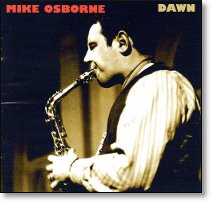 |
 |
Music: Current count 26129 [26097] rated (+32), 402 [389] unrated (+13).
Missed my usual Monday deadline this week. Stuff happens, most of which is getting me down.
Rated count dropped back into normal range, although that may just be because I lost Sunday to cooking (Italian, for six). I played old favorites that day, winding up with Ben Webster's Soulville -- I'm tempted to bump it up a notch to A+, but the CD player (a Sony CDP-CD345) was dead this morning, so it will be some time before I play anything on the good stereo. I suppose I can still play CDs on the computer, but that's not really the same thing (and I've never done it except to test the sound system). I can still stream stuff, so there'll be more of that in the next week or so until I sort this out. The problem is in the mechanics: the motor, gears, belts, or what have you that are used to open the tray and change discs. I've gone through four or five CD changers in the lifespan of one receiver, and they seem to be getting crappier all the time. They're also not getting cheaper (actually, I mean less expensive; a free market should weed out planned obsolescence, but when have we had one of those?).
Pazz & Jop came out last week. I meant to do some of my usual analysis this week, but that got wiped out with the rest of the week. The album totals are here, compiled by Glenn McDonald. I've noted the standings there in my EOY Aggregate, scoring them like a regular list (which means 1 point for everything from 21st to the end). Some notes:
There were 481 voters this time, out of a "thousand plus" invites sent out (past years have had close to 1500, but they're less forthcoming this year. Kendrick Lamar was on 43.6% of those ballots; Courtney Barnett 34.6%; no one else more than 20%. The top three point totals were 2639-1872-1073, so huge margins for Lamar and Barnett. The former was no surprise at all. The latter shouldn't have been, but Sufjan Stevens has been securely ranked second in my EOY aggregate ever since Lamar passed him. P&J reliably values American hip-hop more than my EOY Aggregate, which includes dozens of British and European lists. Kendrick Lamar topped both lists by large margins, but below nearly every US hip-hop artist gained from EOYA to P&J:
- Vince Staples: Summertime '06: from 12 to 7
- Drake: If You're Reading This It's Too Late: 19 to 18
- Future: DS2: 20 to 17
- Miguel: Wildheart: 22 to 14
- Donnie Trumpet & the Social Experiment: Surf: from 32 to 15
- Shamir: Ratchet: 34 to 31
- The Weeknd: Beauty Behind the Madness: 35 to 19
- Earl Sweatshirt: I Don't Like Shit, I Don't Go Outside: 39 to 26
- Dr Dre: Compton: A Soundtrack: 41 to 56
- ASAP Rocky: At.Long.Last.ASAP: 52 to 65
- Rae Sremmurd: SremmLife: 64 to 40
- Young Thug: Barter 6: 66 to 32
- The Internet: Ego Death: 67 to 57
- Jazmine Sullivan: Reality Show: 94 to 39
- Dawn Richard: Blackheart: 100 to 29
On the other hand, Sleaford Mods: Key Markets dropped from 36 to 122, and Young Fathers dropped from 56 to 120. My theory for the two drops on this list (Dr. Dre and ASAP Rocky, but especially the former) is that the albums sucked. I won't try to dig through the data, but I think there's a fairly decent correlation between quality (as measured by the gold standard of my grades) and the gain from the EOYA baseline to P&J.
It would be helpful if P&J made available demographic data on the electorate. I imagine that at least 95% of the voters are Americans (or at least based in the US), and that helps tilt the electorate toward US hip-hop. On the other hand, the voters are probably 90-95% white, and the number of hip-hop specialists is probably quite small.
Note that the biggest gains in my hip-hop list above were posted by women (Dawn Richard, Jazmine Sullivan). P&J voters are also more likely to favor women artists relative to the EOYA baseline. To wit:
- Courtney Barnett: Sometimes I Sit and Think, and Sometimes I Just Sit: from 3 to 2
- Grimes: Art Angels: 7 to 4
- Julia Holter: Have You in My Wilderness: 8 to 33
- Sleater-Kinney: No Cities to Love: 10 to 5
- Bjork: Vulnicura: 11 to 23
- Joanna Newsom: Divers: 13 to 16
- Carly Rae Jepsen: E-mo-tion: 16 to 3
- Beach House: Depression Cherry: 23 to 38
- Adele: 25: 27 to 35
- Natalie Prass: Natalie Prass: 42 to 67
- Lana Del Rey: Honeymoon: 46 to 61
- Kacey Musgraves: Pageant Material: 47 to 20
- Wolf Alice: My Love Is Cool: 49 to 115
- Florence + the Machine: How Big How Blue How Beautiful: 50 to 64
- Hop Along: Painted Shut: 59 to 22
- Laura Marling: Short Movie: 61 to 112
- Torres: Sprinter: 65 to 28
- Chelsea Wolfe: Abyss: 71 to 176
- Jenny Hval: Apocalypse Girl: 72 to 112
- Ibeyi: Ibeyi: 74 to 143
- Beach House: Thank Your Lucky Stars: 78 to 118
- Waxahatchee: Ivy Tripp: 79 to 37
- Susanne Sundfor: Ten Love Songs: 83 to 72
- Jessica Pratt: On Your Own Love Again: 90 to 63
- Jazmine Sullivan: Reality Show: 94 to 39
- Dawn Richard: Blackheart: 100 to 29
- Ashley Monroe: The Blade: 102 to 36
- Rhiannon Giddens: Tomorrow Is My Turn: 105 to 52
The trend is a bit less pronounced here, because other styles and the US/UK split enter into the matter, and because the electorate is probably 80-85% male (I counted once, but don't recall the numbers). To sharpen it a bit I dropped two non-singers (Holly Herndon, who dropped from 21 to 78, and Maria Schneider, 69-289). I also extended the EOYA cutoff to 110 to pick up Monroe and Giddens (no hip-hop artists in that range, but the next one down, Heems, got a bump from 113 to 74). Among style issues, P&J likes country (including alt) more than EOYA (aside from Musgraves and Monroe, above, Chris Stapleton rose from 62 to 24, James McMurtry from 107 to 51, and Eric Church from 138 to 83). On the other hand, with rare crossover exceptions P&J has little interest in electronica, with rare crossover exceptions, really isn't very interested in electronica.
Last week I made a list of albums I thought would finish higher in P&J than in my EOYA. My list included several names that did indeed make significant gains: Sleater-Kinney (10-5), Vince Staples (12-7), Kacey Musgraves (47-20), Hop Along (59-22), Chris Stapleton (62-24), Bob Dylan: Shadows in the Night (81-49), Bob Dylan: The Cutting Edge (96-86), Ashley Monroe (102-36), James McMurtry (107-51), and Heems (113-74). Others on my list didn't do so well: Oneohtrix Point Never: Garden of Delete (14-30), Lana Del Rey (46-61), JLin: Dark Energy (48-127), ASAP Rocky (52-65), Arca: Mutant (57-66), Ezra Furman: Perpetual Motion People (76-184), . Most of these are records that had steadily gained throughout my list build. Furman was probably just wishful thinking, given that almost all of his support came from UK lists. Oneohtrix was my main surprise here: it had closed strong late, was as close to hip-hop as to electronica, and had quite a bit of US support (including an A- from Christgau), so it seemed likely to buck the anti-electronica bias (similar to Flying Lotus last year).
Some big gains I didn't mention: Carly Rae Jepsen (16-3), Jason Isbell: Something More Than Free (28-11), The Weeknd (35-19), Waxahatchee (79-37), Titus Andronicus (75-50). I also didn't look far enough down the EOYA list to even consider: Hamilton (134-21), Royal Headache (108-44), Beach Slang (144-48), Future: 56 Nights (194-56), Bully: Feels Like (136-62), Colleen Green: I Want to Grow Up (342-68), Yo La Tengo: Stuff Like That There (126-69), Julien Baker: Sprained Ankle (219-70), The Sonics: This Is the Sonics (356-73), Speedy Ortiz: Foll Deer (159-77), Joan Shelley: Over and Even (253-80), Laurie Anderson: Heart of a Dog (193-83), JD McPherson: Let the Good Times Roll (226-94), Erykah Badu: But You Caint Use My Phone (218-95), Beauty Pill: Describes Things as They Are (492-97), Jeffrey Lewis: Manhattan (211-98). The biggest surprise for me was Jepsen, despite being aware that the album made substantial gains over time. Hamilton was less of a surprise, but it's such an unusual item (and appeared so late in the year) there were no obvious rules for how it might move. I hadn't even been aware of it until Rolling Stone -- almost alone among publications -- listed it 8th. (Its only other top ten placement was number 2 at Billboard.) I played it, and found it a rather unique item -- a trait some like a lot, while most of the rest of us simply put it out of mind. (I quibbled more with the tone than with the facts of the history -- I never thought of Hamilton as an immigrant striver; he seemed much more to be a proto-Napoleon, an empire-builder. Of course, constant contrast to Burr makes him look good. As for as the music is concerned, I appreciate the hip-hop as a joke, but it's clear to me Lin Manuel-Garcia draws more on the hack-musical tradition than any other resource.)
I didn't attempt to predict many losses: I flagged Julia Holter (8-33) and Kamasi Washington (9-8) as possibles, and Blur (15-53) and Sleaford Mods (36-122) as probables, and thought Adele (27-35) could go either way. Otherwise, I rather expected everything on the EOYA list that wasn't rising would fall a bit but roughly maintain order. To some extent that happened toward the top of the list: Sufjan Stevens: Carrie and Lowell (2-6), Jamie XX: In Colour (4-9), Father John Misty: I Love You Honeybear (5-10), Tame Impala: Currents (6-12), Bjork (11-23), Kurt Vile: B'lieve I'm Goin Down (17-27). Beyond that most of the exceptional drops were genre-related: electronica: Jamie XX (4-9), Chvrches: Every Open Eye (31-41), Arca (56-66), Floating Points: Elaenia (29-76), Holly Herndon (21-78), Four Tet: Morning/Evening (82-104); jazz: Maria Schneider (69-289), Rudresh Mahanthappa: Bird Calls (99-190), Vijay Iyer: Break Stuff (98-232); metal: Deafheaven: New Bermuda (24-54), Ghost: Meliora (84-104), Faith No More: Sol Invictus (63-125), Tribulation: The Children of the Night (95-143), Iron Maiden: The Book of Souls (73-179); and something I can only disparage as damaged art rock: Holter (8-33), Unknown Mortal Orchestra: Multi-Love (30-106), Tobias Jesso Jr: Goon (44-102), Godspeed You! Black Emperor: Asunder Sweet and Other Distress (77-538) -- but note that Beauty Pill was an exception.
Kamasi Washington: The Epic (9-8) is a unique case. The idea that it might drop was largely based on the fact that it got reasonably good support among jazz critics (4th place in the Jazz Critics Poll, I pick up a lot of jazz lists, and P&J has very few jazz critics voting. Take those jazz critics away and The Epic finishes a few slots lower (12-15th). I also noted that it did exceptionally well in Europe, and that would work against it in P&J. I also don't think it's all that great (and as I noted, records I don't like tend to sink), but it's also a fairly unique item if you get into it, and I've long suspected that there is a latent jazz audience waiting for something to break out of the tradition and the school system. So it wasn't certain to drop, but I wouldn't have been surprised if it did. And now we know that it held its own, passing four records ahead of it (Stevens, XX, Misty, and Holter) while getting passed by three others (Jepsen, S-K, and Staples). Maybe I should be hopeful that more such crossovers will follow, but I still rather think it's a fluke.
The vote distribution has a long tail: only 2 records appear on more than 20% of the ballots, 14 on more than 10%, 32 on 5% or more, roughly 100 on 2%, roughly 200 on 1%, and more than 1200 on fewer ballots (the highest single ballot album came in 267th). Relative rankings are pretty much meaningless after 250th place (if not more like 200th). I've long felt that the poll would be much more interesting if you allowed voters to cast longer ballots -- to fatten up that tail -- where 11-20 are accorded 3 points (vs. minimum 5 for the top 10), 21-30 2 points, and everything after that 1 point. The marginal points wouldn't have much impact on the totals, but they would make it much easier to analyze the voting base and the affinities of individual voters. The poll could also solicit various forms of demographic information. I'd also like to construct a taste profile where voters rate a selected list of records independently of their rankings. More work, sure, but a lot more useful data. (I did use the expanded voting scheme on a couple of polls I ran on the Christgau website, and I thought it worked well -- the voter base was small and pretty homogeneous, so the extra data helped a lot.)
- Glenn McDonald also calculates a number of extra metrics to help explain the data (explanation here). Aside from kvltosis, which attempts to find records that were popular among voters who stayed clear of the really popular records -- a dialectic which can elevate records favored by smallish cliques (like jazz and metal) rather than true obscurities -- McDonald's other categories have meaningful names which undermined by peculiar definitions. One you can sort of understand is enthusiasm: the ratio of points to votes. The list it generates is a mix of poll leaders (6. Lamar, 14. Stevens, 16. Jepsen, 23. Washington, 25. Barnett, 28. Grimes) and low-vote albums where odds suggest that there will be a wider spread of vote value. To limit the latter effect, McDonald only lists albums with 5+ votes: the result is that the top three have 5-6 votes, and half of the top 40 have 10 votes or less. Some of those certainly do show albums that only a small circle likes a lot (like #19 Laurie Anderson, or with a wider circle #4 Hamilton) but some are statistical flukes.
Several of McDonald's terms seem almost as arbitrary as their definitions. Hipness, for instance, favors album voters who also voted for singles over those who didn't. I've been on both sides of that equation, and hardly feel hipper for having filled out a singles list this year. The Hipness list itself may steer slightly toward pop, but mostly looks like noise to me. Except, that is, for the bottom five (min. 5 ballots): Dave & Phil Alvin: Lost Time, Ezra Furman, Jeffrey Lewis, Laurie Anderson, and Yo La Tengo. Michael Tatum must be kicking himself for not filing a singles ballot this year (also Robert Christgau and Cam Patterson).
I'm not going to bother with deconstructing McDonald's other terms, like Monolithity, Vitality, and Singularity, none of which mean anything you can imagine. I will note that I personally followed a voting strategy which undermines those categories: I deliberately only picked singles from albums I didn't pick. I don't know how common that strategy is -- you'd largely eliminate it by allowing more than 10 album picks -- but it complicates using singles data to gain insights into voters. (I'll note, for instance, that Dan Weiss moved up on my "similar ballots" list because I literally cribbed some singles from his ballot. We did have two albums in common -- Barnett and Heems -- enough to put him on my list, but further down.) I will comment on Metalism, a category which exists only because McDonald is a Metalist (#5 this year). The same concept could be applied with any reasonably identifiable genre -- hip-hop, country, jazz, electronica, Latin, African, etc. As someone who is the proud owner of a .000 lifetime metalism score, I dare say anything else would be more interesting.
My own ballot-plus-analysis is here, including previous ballots back to 2008 (used to calculate Breadth, another concept I find statistically dubious). The Centricity score is more useful: it measures how much overlap a voter has with the poll average, so the people who go with the crowd have high scores (I find it curious that I only recognize 2 of the 20 most centric voters) and those who abhor crowds have low scores. My centricity scores have averaged .131, with a low in 2014 of .061, but reached a record high this year at .234, almost exclusively on the strength of voting for Courtney Barnett: 166 other votes; after that it's James McMurtry (16), Heems (11), Laurie Anderson (8), Sleaford Mods (6), Henry Threadgill (4), Irene Schweizer (2), Lyrics Born (1), and Paris (1). I could have totally goosed my score by voting for Kendrick Lamar, which would have placed in my top 20, but as much as I admire the album, I still don't really feel it (and I've played it twice since voting), nor did I feel like wasting a vote (that ultimately went to Heems but probably should have gone to a third jazz album, Schlippenbach Trio or Chris Lightcap). The point being that these numbers are volatile, depending as much on strategic choices as taste.
All of the EOYA values listed above are taken from last week's file. Since then I've added in a bunch of new lists, plus noted all the P&J results. I'll add more data over the next few days, but I'm getting pretty close to done. Main thing I will be doing is jumping from individual ballot to ballot. For instance, I'll check out everyone I don't already know who has a similar ballot to mine. (Michael Tatum, not for the first time, topped that list.) Ever since the Voice built its database-driven P&J reporting system this kind of hopscotch has been its most useful feature, allowing you to repeatedly pose the questions: who likes the albums I like, and what do they also like.
Also see the Hilary Hughes interview with the former Pazz & Jop poobahs: Robert Christgau, Joe Levy, Ann Powers, and Greg Tate on the Year That Was. Christgau gets cranky about Hamilton, Kamasi Washington, and Chris Stapleton, and I have to admit I basically agree with him on those.
The big music news of the week was David Bowie's death. I was a pretty serious fan back in the 1970s, but I have to admit that I've been surprised by the outpouring of testaments and such. (Last time that happened was with Michael Jackson, who like Bowie touched many people deeper than I realized. Here are some links I collected:
- Robert Christgau Remembers Six Ways 70s Bowie Changed Culture Forever
- Milo Miles: Prime David Bowie -- Let's Paint Our Faces and Dance
- Alfred Soto: David Bowie: You Walked Into My Life Out of My Dreams
- Alan Scherstuhl: Why Didn't David Bowie Get Higher Marks From Pazz & Jop?
I spent a few days last week going through nearly all of the Bowie albums I had missed. I can't say that I missed much, although the song "I'm Afraid of Americans" has only become truer. Despite the jazz moves, I can't, however, see his new album, Blackstar, as some sort of final masterpiece. Which isn't to deny that it is a big improvement -- his best since Scary Monsters (1980) or maybe even Heroes (1977). (Actually, my favorite Bowie album ever is Lust for Life, under Iggy Pop's name, which also came out in 1977.)
Finally, more EOY lists:
- George Grella (Big City Blog)
- Peter Margasak (Chicago Reader/The Bleader)
- Expert Witness Members Poll: Brad Luen solicited this P&J clone from the Expert Witness group on Facebook, plus he evidently picked up a few compatible ballots elsewhere (including mine, I think). As a public service, I copied the results here.
New records rated this week:
- The Arcs: Yours, Dreamily (2015, Nonesuch): [r]: B
- Battles: La Di Da Di (2015, Warp): [r]: A-
- The Bellfuries: Workingman's Bellfuries (2015, Hi-Style): [r]: B
- David Bowie: Blackstar (2016, Columbia): [r]: B+(***)
- Kenny Carr: Exit Moon (2015, Zoozazz Music): [cd]: B+(*)
- Bob Gluck/Billy Hart/Eddie Henderson/Christopher Dean Sullivan: Infinite Spirit: Revisiting Music of the Mwandishi Band (2015 [2016], FMR): [cd]: B+(***)
- Health: Death Magic (2015, Loma Vista): [r]: B+(*)
- Lil Dicky: Professional Rapper (2015, self-released, 2CD): [r]: A-
- Lions: Lions EP (2014 [2015], self-released, EP): [bc]: B+(**)
- Jenny Maybee/Nick Phillips: Haiku (2015 [2016], self-released): [cd]: B
- Terrence McManus and John Hébert: Saints and Sinners (2015, Rowhouse Music): [dl]: B+(*)
- John Raymond: John Raymond & Real Feels (2014 [2016], Shifting Paradigm): [cd]: B+(***)
- Adam Rudolph/Go: Organic Guitar Orchestra: Turning Towards the Light (2015, Cuneiform): [dl]: B+(**)
- Skyzoo & Antman Wonder: An Ode to Reasonable Doubt (2013, self-released, EP): [r]: B+(**)
- Skyzoo: Music for My Friends (2015, First Generation Rich): [r]: B+(**)
- The Stryker/Slagle Band Expanded: Routes (2015 [2016], Strikezone): [cd]: B+(***)
- Snarky Puppy/Metropole Orkest: Sylva (2014 [2015], Impulse!): [r]: B+(***)
Recent reissues, compilations, and vault discoveries rated this week:
- Mike Osborne: Dawn (1966-70 [2015], Cuneiform): [dl]: A-
- Gloria Ann Taylor: Love Is a Hurtin' Thing (1971-77 [2015], Luv N' Haight): [r]: B+(*)
Old music rated this week:
- David Bowie: David Live (1974 [2005], Virgin EMI, 2CD): [r]: B
- David Bowie: Stage (1978 [2005], Virgin EMI, 2CD): [r]: B+(**)
- David Bowie: Tonight (1984, EMI America): [r]: B-
- David Bowie: Never Let Me Down (1987, EMI America): [r]: B-
- David Bowie: Black Tie White Noise (1993, Virgin): [r]: B
- David Bowie: The Buddha of Suburbia (1993 [2007], Virgin): [r]: B
- David Bowie: Outside (1995, Virgin): [r]: B-
- David Bowie: Earthling (1997, Virgin): [r]: B
- David Bowie: Hours . . . (1999, Virgin): [r]: B-
- David Bowie: Heathen (2002, ISO/Columbia): [r]: B
- David Bowie: Nothing Has Changed (1995-2014 [2014], Columbia/Legacy): [r]: B+(*)
- Sue Foley: Change (2004, Ruf): [r]: B+(***)
- Peter Karp/Sue Foley: Beyond the Crossroads (2012, Blind Pig): [r]: B+(*)
- Tin Machine: Tin Machine (1989, EMI): [r]: C+
Grade changes:
- Carly Rae Jepsen: E-MO-TION (2015, Interscope/Schoolboy/Silent): [r]: [was: B+(***)] A-
- Lord Huron: Strange Trails (2015, Iamsound): [r]: [was: B+(**)] B+(***)
Unpacking: Found in the mail last week:
- Melissa Aldana: Back Home (Wommusic): advance, March 11
- Cowboys & Frenchmen: Rodeo (Outside In Music): CD, no cover
- Blue Muse: Blue Muse Live (Dolphinium)
- Kenny Carr: Exit Moon (Zoozazz Music)
- Roxy Coss: Restless Idealism (Origin)
- Mike Freeman ZonaVibe: Blue Tjade (VOF): January 25
- Ira Hill: Tomorrow (self-released)
- Joseph Howell: Time Made to Swing (Summit)
- Christine Jensen and Maggi Olin: Transatlantic Conversations: 11 Piece Band Live (Linedown): February 15
- Matt Kane & the Kansas City Generations Sextet: Acknowledgement (Bounce-Step): March 4
- Urs Leimgruber/Alex Huber: Lightnings (Wide Ear)
- Dick Oatts/Mats Holmquist/New York Jazz Orchestra: A Tribute to Herbie +1 (Summit)
- La Orquesta Sonfonietta: Canto América (Patois): February 12
- Matt Parker Trio: Present Time (BYNK): February 12
- Jemal Ramirez: Pomponio (First Orbit Sounds Music)
- Roswell Rudd & Heather Masse: August Love Song (Red House): February 26
- Samo Salamon Bassless Trio: Unity (Samo)
- Carlos Vega: Bird's Ticket (Origin)
- Ray Vega & Thomas Marriott: Return of the East West Trumpet Summit (Origin)
Miscellaneous notes:
- David Bowie: Nothing Has Changed (1995-2014 [2014], Columbia/Legacy): B+(**)
- Gloria Ann Taylor: Love Is a Hurtin' Thing (1973 [2015], Luv N' Haight): B+(*) [rhapsody]
Added grades for remembered LPs from way back when:
- Ed Sanders: Beer Cans on the Moon (1972, Reprise): B-
Sunday, January 17, 2016
Daily Log
Made a belated birthday dinner for T.J. Edmonds last night: a rather somber occasion coming a month or so after the death of David Brewer, his "long-time companion" and, thanks to the blessings of the US Supreme Court, finally husband. They were long-term friends of my sister's -- virtual family would be more like it. David worked at the local public TV station (program director, if memory serves). I used to run into T.J. a couple times a week when he worked for Wichita's last decent record store. He was into techno, worked on the side as a DJ, and did some original electronica music.
I offered him the usual bewildering range of choices, and he opted for something Italian (not seafood). I consulted Marcella Hazan's Essentials of Classic Italian Cooking, and came up with a menu:
- Pasta (Penne) with Peas, Bacon and Ricotta Sauce (p. 163)
- Veal Scaloppine with Tomato, Oregano, and Capers (p. 364): scaled up by 50%
- Sauteed Broccoli with Olive Oil and Garlic (p. 477)
- Zucchini Gratin with Tomato and Marjoram (p. 533)
- Baked Stuffed Mushroom Caps (p. 76)
- Panzanella (Bread Salad) (p. 554)
- Romaine Lettuce Salad with Gorgonzola Cheese and Walnuts (p. 551)
- New York Cheesecake -- from Ruth Reichl's autobiography
I always assume we need a cake for a birthday, but neither Hazan's almond nor her walnut cake seemed appropriately grand, and I thought the creaminess of the cheesecake would be a nice ending. I've made the stuffed mushrooms several times before, and had made different panzanella recipes. I've made several other scaloppine recipes -- the one with cream, capers, and grappa is my favorite, edging out even the piccata -- but thought that since I went non-tomato with the pasta, I'd put the tomato sauce on the veal.
Veal has always been difficult to buy around here, but a couple strategic Dillons stores have recently started stocking several cuts in tightly sealed packages. Still, I was only able to come up with one 8 oz. package of scaloppine, but found a couple "veal chops" -- looked like thick T-bones -- deboned and sliced them into three layers and pounded them thinner, and they worked fine.
Only other shopping problem was that I couldn't find any porcini to mix into the mushroom stuffing, but I figured that would have been overkill -- for one thing, I was using baby portabellas instead of the usual buttons. I also cut the pancetta back and made up the difference with diced prosciutto, although that too hardly made any difference.
Aside from a minor cosmetic glitch with the cheesecake, I thought everything came out splendid. Was anticipating eight people, but only six showed. Good group. Was pleased that I could do it.
Tuesday, January 12, 2016
Pazz & Jop Notes
At the last minute, Brad Luen ran a poll at the Expert Witness Facebook group. He counted 47 ballots: "34 in the voting thread and 13 solicited through other means." Voters allocated P&J points. He broke point ties by "(i) points per vote, (ii) points after dropping highest score." I wasn't aware of this, so didn't vote, although it's not inconceivable that my P&J ballot -- posted on my blog more than a week ago -- was one of those picked up "by other means." I've scraped off the Facebook thread, so will get a better idea when/if I analyze it [e.g., Paris got one vote for 8 points, like on my ballot; I was the only one to vote for Paris in P&J].
Meanwhile, the standings (the three numbers are total points, number of votes, and highest points on any ballot; any album with only one vote wasn't ranked, even if the point total would have placed it):
- Courtney Barnett: Sometimes I Sit and Think, and Sometimes I Just Sit (423/35/20)
- James McMurtry: Complicated Game (282/26/18)
- Sleater-Kinney: No Cities to Love (272/26/18)
- Kendrick Lamar: To Pimp a Butterfly (269/19/30)
- Yo La Tengo: Stuff Like That There (190/19/15)
- Donnie Trumpet & the Social Experiment: Surf (187/20/15)
- Jeffrey Lewis & Los Bolts: Manhattan (183/17/20)
- Laurie Anderson: Heart of a Dog (161/15/18)
- Mbongwana Star: From Kinshasa (147/15/15)
- Ezra Furman: Perpetual Motion People (141/14/16)
- Heems: Eat Pray Thug (139/17/16)
- Grimes: Art Angels (113/10/17)
- The Paranoid Style: Rock and Roll Just Can't Recall (91/10/15)
- Hamilton (Original Broadway Cast Recording) (89/6/20)
- Irčne Schweizer/Han Bennink: Welcome Back (62/5/20)
- Jazmine Sullivan: Reality Show (58/6/12)
- Young Fathers: White Men Are Black Men Too (57/5/15)
- Chris Lightcap's Bigmouth: Epicenter (57/5/16)
- The Chills: Silver Bullets (57/6/15)
- Joanna Newsom: Divers (50/3/25)
- Future: DS2 (50/6/12)
- Robert Forster: Songs to Play (48/5/11)
- Sleaford Mods: Key Markets (45/5/10)
- The Mountain Goats: Beat the Champ (43/5/11)
- The Velvet Underground: The Complete Matrix Tapes (42/2/22)
- Hop Along: Painted Shut (42/5/14)
- Rudresh Mahanthappa: Bird Calls (40/5/12)
- Lana Del Rey: Honeymoon (39/3/15)
- Oneohtrix Point Never: Garden of Delete (35/4/11)
- Kacey Musgraves: Pageant Material (31/2/19)
- Miguel: Wildheart (31/4/14)
- Sufjan Stevens: Carrie & Lowell (30/4/10)
- Bassekou Kouyate & Ngoni Ba: Ba Power (29/3/13)
- Fabiano Do Nascimento: Dança Dos Tempos (28/2/14)
- Lyrics Born: Real People (28/2/18)
- Jack DeJohnette: Made in Chicago (27/2/20)
- Aram Bajakian: There Were Flowers Also in Hell (27/3/12)
- J.D. McPherson: Let the Good Times Roll (26/2/20)
- Blackalicious: Imani, Vol. 1 (24/3/9)
- Protomartyr: The Agent Intellect (23/2/13)
Also receiving at least two votes:
- Father John Nisty: I Love You, Honeybear (22/2/15)
Highest reported point totals with one vote:
- D'Angelo & the Vanguard: Black Messiah (25/1/25)
- Chris Stapleton: Traveler (25/1/25)
Monday, January 11, 2016
Music Week
 |
 |
 |
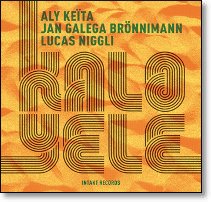 |
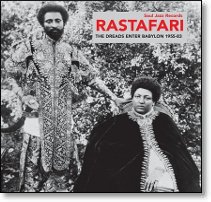 |
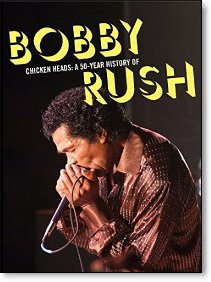 |
Music: Current count 26097 [26050] rated (+47), 389 [395] unrated (-6).
Most of the following list appeared in last week's Rhapsody Streamnotes, so no news there. I think I ran the program that counts the ratings on Thursday when I cloned the file and was surprised to find the ratings count at +32, normally a good week's work. Or maybe that was Friday when it was posted. The new draft file, which I set up as "January 2016 Part 2" currently has 20 records, a pretty healthy start. (Actually, I think I seeded it with three 2016 releases I had already written up -- Friday's RS had no 2016 releases.)
The 2016 releases thus far are jazz items I shoved to the end of the queue to concentrate on 2015 releases. I haven't begun to look for new 2016 streamables, although I did notice a new David Bowie album on Rhapsody last night, and with the news of his death I'm spinning it now. (Marks a return of the "thin white duke" crooner, with orchestral swing and quite a bit of sax adding a jazzy air, the dramatic flair reminding me of Ziggy Stardust as much as anything else. Bowie produced a lot of lousy records following 1983's Let's Dance -- itself a very mixed bag -- and I thought his much-touted 2013 The Next Day came up short, but I can imagine someone more sentimental than I falling for this record. Will play it again for next week. Maybe I'll also get around to that 1993 album still marked 'U' in my database.)
I expect good things from Intakt, but still was surprised to find my first A record of 2016, an African-born, balafon-driven jazz trio called Kalo Yele. The balafon player, Aly Keďta, comes from Côte D'Ivoire, but the other two musicians are recognizably Swiss, yet somehow managed to be born in Cameroon (once a German colony, divided between France and Britain after 1919, independent in 1960 with the British dragging their heels until 1961). Lucas Niggli is a well-known drummer I need to look into further -- I do know that he was a protégé of Lucien Favre, who's long been fascinated by African drumming. But I've never heard of clarinetist Jan Galega Brönnimann, who provides the perfect complement to the percussion. Marvelous.
I also came close to A-listing Intakt's other January release, a piano trio with Aruán Ortiz, Eric Revis, and Gerald Cleaver. A lot of piano trio fall into my "nice" trough, and this one -- largely thanks to the rhythm section -- rose above that, but only a few each year really dazzle me, and this didn't quite.
One piano trio that did dazzle me was released in 1953 as Introducing Paul Bley -- as much as Revis and Cleaver impressed me, note that Bley managed to get help from Charles Mingus and Art Blakey. Bley's second great album came in 1958 when he expanded to a quintet by hiring a young alto saxophonist named Ornette Coleman: I first ran across this as Live at the Hilcrest Club, but my current copy is simply The Fabulous Paul Bley Quintet. And in 1961-62 he was in one of the most famous avant-garde trios in jazz history, with Jimmy Giuffre and Steve Swallow. He was also famous for having married two brilliant musicians, the composer-pianist Carla Borg (better known under his name) and the singer-songwriter Annette Peacock (don't know her maiden name, but her first husband was bassist Gary Peacock, later an important collaborator of Bley's), and he recorded several albums of their compositions. Bley continued to record through 2008, mostly solo and trio albums, some exceptional (1965's Closer and 1989's BeBopBeBopBeBopBeBop are personal favorites but I've only heard about a third of them). Anyhow, he died a week ago, and should be remembered as a giant of modern jazz.
I rarely listen to multi-disc sets on Rhapsody because they are invariably too much to swallow in one stretch, and it's hard to break up the experience like I would normally if I had separate discs. However, I took a chance with a 4-CD box that Phil Overeem has been touting, Chicken Heads: A 50-Year History of Bobby Rush last night when I was working on my screed about ISIS, and it fit the bill perfectly, running on and on with deep blues and soul grooves and the occasional chintzy cover. Rush missed the heyday of Chicago blues, failed at Philadelphia International, then spent three or four decades working the chitlin circuit, a nice career for a guy who never came close to stardom. I wrote my review before the last disc finished, only to find that the last few cuts tailed off quite a bit. I thought about docking the grade then, but decided to let it slide by. Having only heard one previous album (out of at least three dozen), I'm going out on a limb saying that he probably doesn't have a single A- record in his catalog so there's something inherently unseemly about grading a 4-CD box that high, but he was so steady he grows on you, and over the course of a long career one winds up admiring that.
Maybe I'll find an appropriate time to try The Complete Matrix Tapes. Last time I looked, The Cutting Edge wasn't there, at least in a recognizable product configuration. (The Dylan bootlegs, by the way, completely buried the Miles Davis bootlegs in my EOY Aggregate: Old Music, 37-15, with Ata Kak's Obaa Sima (one of those Awesome Tapes From Africa) in third place. The list is pretty idiosyncratic, largely because it's built from 20-30 lists, less than 10% of the new release albums lists I've compiled, and partly because the longer lists skew toward obscure electronica (although it looks like most are so obscure I haven't flagged them).
Meanwhile, I keep adding to the EOY Aggregate (although I haven't touched it in a couple days). Current standings (with Pazz & Jop coming out later this week; my grades in brackets):
- [728]: Kendrick Lamar: To Pimp a Butterfly (Aftermath/Top Dawg/Interscope) [A-]
- [477]: Sufjan Stevens: Carrie & Lowell (Asthmatic Kitty) [***]
- [404]: Courtney Barnett: Sometimes I Sit and Think and Sometimes I Just Sit (Mom + Pop Music) [A-]
- [352]: Jamie XX: In Colour (XL/Young Turks) [***]
- [325]: Father John Misty: I Love You Honeybear (Sub Pop) [B]
- [325]: Tame Impala: Currents (Caroline) [*]
- [282]: Grimes: Art Angels (4AD) [A-]
- [265]: Julia Holter: Have You in My Wilderness (Domino) [B]
- [249]: Kamasi Washington: The Epic (Brainfeeder) [**]
- [247]: Sleater-Kinney: No Cities to Love (Sub Pop) [*]
- [237]: Bjork: Vulnicura (One Little Indian) [B-]
- [219]: Vince Staples: Summertime '06 (Def Jam) [***]
- [199]: Joanna Newsom: Divers (Drag City)
- [162]: Oneohtrix Point Never: Garden of Delete [***]
- [139]: Blur: The Magic Whip (Parlophone/Warner) [**]
- [136]: Carly Rae Jepsen: E-mo-tion (Interscope/School Boy) [***]
- [132]: Kurt Vile: B'lieve I'm Goin Down (Matador) [B]
- [131]: Alabama Shakes: Sound & Color (ATO) [*]
- {130]: Drake: If You're Reading This It's Too Late (Cash Money) [B]
- [127]: Future: DS2 (Epic) [A-]
- [121]: Holly Herndon: Platform (4AD) [**]
- [121]: Miguel: Wildheart (RCA) [***]
- [120]: Beach House: Depression Cherry (Sub Pop) [B]
- [119]: Deafheaven: |New Bermuda (Anti)
- [116]: Deerhunter: Fading Frontier (4AD) [***]
- [104]: Viet Cong: Viet Cong (Jagjaguwar) [**]
- [98]: Adele: 25 (XL)
- [97]: Jason Isbell: Something More Than Free (Southeastern) [*]
- [96]: Floating Points: Elaenia (Luaka Bop) [***]
- [92]: Unknown Mortal Orchestra: Multi-Love (Jagjaguwar) [B-]
- [88]: Chvrches: Every Open Eye (Universal) [**]
- [86]: Donnie Trumpet & the Social Experment: Surf (self-released) [A-]
- [85]: Mbongwana Star: From Kinshasa (World Circuit) [A-]
- [85]: Shamir: Ratchet (XL) [A-]
- [84]: The Weeknd: Beauty Behind the Madness (Republic) [*]
- [80]: Sleaford Mods: Key Markets (Harbinger Sound) [A-]
- [78]: Wilco: Star Wars (dBpm) [***]
- [77]: Destroyer: Poison Season (Merge) [*]
- [76]: Earl Sweatshirt: I Don't Like Shit I Don't Go Outside (Columbia) [*]
- [75]: D'Angelo & the Vanguard: Black Messiah (RCA -14) [A-]
- [75]: Dr Dre: Compton: A Soundtrack by Dr Dre (Aftermath/Interscope) [B-]
- [75]: Natalie Prass: Natalie Prass (Sony) [*]
My grades here are pretty evenly distributed: 8 A-, 8 ***, 5 **, 8 *, 5 B, 3 B-, 3 ungraded. Robert Christgau, who's always a bit more in step with the critical consensus, graded eight (or nine with Adele) of these records higher than I did, moving five over the A- line: Jamie XX, Sleater-Kinney, Oneohtrix Point Never, Miguel, Jason Isbell. Other aggregate lists pretty much agree, regardless of depth or method -- I'd say they're probably more consistent this year than most. P&J will shuffle these around a bit, but I don't forsee anything major, unless Holter or Washington take a dive (Sleater-Kinney will probably pass them, maybe Vince Staples and/or Oneohtrix Point Never too. UK favorites typically fall off, but that mostly means Blur and Sleaford Mods. The closest thing to a late gainer (like Beyoncé and D'Angelo in recent years) is Adele, which could go either way.
Also not a lot of lower-ranked albums with much P&J upside potential. The best outside shots I see are: Lana Del Rey: Honeymoon (46), Kacey Musgraves: Pageant Material (47), Jlin: Dark Energy (48), ASAP Rocky: At.Long.Last.ASAP (52), Arca: Mutant (57); Hop Along: Painted Shut (59), Chris Stapleton: Traveler (62); Ezra Furman: Perpetual Motion People (76), Ashley Monroe: The Blade (102), James McMurtry: Complicated Game (107), Heems: Eat Pray Thug (113). Bob Dylan has also always run much higher in P&J than in aggregates, so either Shadows in the Night (81) or, more likely, The Cutting Edge bootlegs could crack the top 40.
New records rated this week:
- Brian Andres and the Afro-Cuban Jazz Cartel: This Could Be That (2015 [2016], Bacalao): [cd]: B+(*)
- Babyface: Return of the Tender Lover (2015, Def Jam): [r]: B+(***)
- Beauty Pill: Beauty Pill Describes Things as They Are (2015, Butterscotch): [r]: B
- Carter Tutti Void: f(x) (2015, Industrial): [r]: B+(***)
- Mary Foster Conklin: Photographs (2014 [2016], MockTurtle Music): [cd]: B+(**)
- Joseph Daley/Warren Smith/Scott Robinson: The Tuba Trio Chronicles (2015 [2016], JoDa Locust Street Music): [cd]: B+(**)
- Dâm-Funk: Invite the Light (2015, Stones Throw): [r]: B
- Dej Loaf: #AndSeeThatsTheThing (2015, Columbia, EP): [r]: B
- Dr. Dre: Compton (2015, Aftermath/Interscope): [r]: B-
- C Duncan: Architect (2015, Fat Cat): [r]: B-
- FKA Twigs: M3LL155X (2015, Young Turks, EP): [r]: C+
- The Foxymorons: Fake Yoga (2015, Foxyphoton): [bc]: B+(***)
- Michael Gibbs & the NDR Bigband: Play a Bill Frisell Set List (2013 [2015], Cuneiform): [dl]: A-
- Hieroglyphic Being: The Acid Documents (2013 [2015], Soul Jazz): [r]: A-
- Hieroglyphic Being & J.I.T.U. Ahn-Sahm-Buhl: We Are Not the First (2015, RVNG Intl): [r]: A-
- Ryan Keberle & Catharsis: Azui Infinito (2015 [2016], Greenleaf Music): [cd]: B+(**)
- The Libertines: Anthems for Doomed Youth (2015, Virgin EMI): [r]: B+(*)
- Liturgy: The Ark Work (2015, Thrill Jockey): [r]: C-
- Lnrdcroy: Much Less Normal (2014 [2015], Firecracker): [r]: B+(***)
- Meek Mill: Dreams Worth More Than Money (2015, Atlantic/MMG): [r]: B+(*)
- Gabriel Mervine: People (2015 [2016], Synergy Music): [cd]: B
- Milo: So the Flies Don't Come (2015, Ruby Yacht): [r]: B+(**)
- Hudson Mohawke: Lantern (2015, Warp): [r]: B
- Róisin Murphy: Hairless Toys (2015, PIAS): [r]: B+(**)
- Noonday Underground: Body Parts for Modern Art (2015, Stubbie): [r]: B+(***)
- Aruán Ortiz Trio: Hidden Voices (2015 [2016], Intakt): [cd]: B+(***)
- Protomartyr: The Agent Intellect (2015, Hardly Art): [r]: B+(**)
- Raury: All We Need (2015, Columbia): [r]: B+(*)
- Schnellertollermeier: X (2013 [2015], Cuneiform): [dl]: B+(**)
- Dale Watson: Call Me Insane (2015, Red House): [r]: B+(**)
Recent reissues, compilations, and vault discoveries rated this week:
- Rastafari: The Dreads Enter Babylon 1955-83 (1955-83 [2015], Soul Jazz): [r]: A-
- Bobby Rush: Chicken Heads: A 50-Year History of Bobby Rush (1964-2014 [2015], Omnivore, 4CD): [r]: A-
- Ty Segall: Ty-Rex (2011-13 [2015], Goner, EP): [r]: B+(*)
- Idrissa Soumaoro: Djitoumou (2010 [2015], Lusafrica): [r]: B+(***)
- Dale Watson: Truckin' Sessions, Vol. 3 (2014 [2015], Red River): [r]: B+(***)
Old music rated this week:
- Michael Gibbs: Tanglewood 63 (1970, Deram): [r]: B+(*)
- Michael Gibbs With Joachim Kühn: Europeana: Jazzphony No. 1 (1994 [1995], ACT): [r]: B+(**)
- Throbbing Gristle: The First Annual Report of Throbbing Gristle (1975 [2001], Thirsty Ear): [r]: B
Unpacking: Found in the mail last week:
- Steve Barta: Symphonic Arrangement: Suite for Flute and Jazz Piano Trio (Steve Barta Music)
- Nicholas Bearde: Invitation (Right Groove): January 29
- Laura Perlman: Precious Moments (Miles High)
- Julian Shore: Which Way Now (Tone Rogue): February 12
- The Stryker/Slagle Band Expanded: Routes (Strikezone): February 5
Sunday, January 10, 2016
Weekend Roundup
Some scattered links this week, mostly about that perennial favorite, war in the Middle East -- nothing on the Oregon standoff (aside from this link to Josh Marshall, who describes it as "white privilege performance art"). Also, in honor of the five 4.0 or higher earthquakes that hit just northwest of Enid, Oklahoma, here's Crowson's cartoon:

You'd think anyone worried that much about the price of gas would take an interest in the wars disrupting the world's largest oil producing region, but, well, Kansas isn't lacking for "stone-age brains" (see below). So back to the wars:
Thomas E Ricks: What are the Saudis up to with those executions? Regional dominance: Actually, this column appears to have been subcontracted to Sarah Kaiser-Cross, no great loss since Ricks has never impressed us as a deep thinker. The argument:
Saudi Arabia had a difficult year. Despite Saudi Arabia's best efforts at restoring order in neighboring Yemen, the Kingdom's efforts to pummel its way to peace have largely failed. Near Saudi Arabia's northern borders, Syria and Iraq continue to struggle through maddening states of chaos and civil war. Internally, Saudi Arabia is battling domestic terror cells, ISIS recruiters, and Shiite protesters. Finally, its American partner, in Saudi Arabia's eyes, all but abandoned the Kingdom by signing the nuclear deal that resulted in greater economic and political power for its long time rival, Iran.
Saudi Arabia's recent executions and the subsequent tension with its rival, Iran, were calculated moves, designed to send a clear message to opponents at home and abroad that Saudi Arabia remains in control. Simultaneously, the executions forced Iran to engage in a no longer subtle political battle for regional dominance.
Power (and hubris) in Saudi Arabia has long been based on two things: the world's largest and most profitable oil reserves, and possession of the "holy cities" of Mecca and Medina. Even in the 1960s the Saudis thought they could take on the rising tide of pan-Arab nationalism in a proxy war against Egypt in Yemen. Oil provided the money to advance their ambitions, and much of that went into propaganda as they pushed their rigid, backward-looking version of Islam throughout the region. Through the 1970s, that seemed to be working out, with oil prices on the rise and the Nixon-Kissinger policy of bolstering regional allies (Iran and Saudi Arabia). However, in 1979 there were two crises: one was the revolt in Mecca that seized the Grand Mosque; the other was the revolution in Iran which, among other things, presented a new claimant for leadership of the Islamic world. The Saudis struggled through the depressed oil market of the 1980s, doubling down on their proselytizing -- conveniently tied to the US-sponsored jihad against the infidel Soviets in Afghanistan -- and helping finance Iraq's ambitious and brutal war against Iran. That led to a new crisis in 1989-90, when Iraq, ending its bloody stalemate with Iran, turned on Kuwait and threatened the rest of the Persian Gulf. The Americans saved Kuwait then, at the expense of compromising the sovereignty of the Saudi Kingdom -- at least in the eyes of its salafist followers. Meanwhile, Iran carefully cultivated ties to Shiite Muslims, aided by the increasingly virulent anti-Shiite behavior of the salafists. Then the US finally returned to "finish the job" in Iraq in 2003, igniting a full-bore Sunni-Shiite civil war that eventually spread into Syria, and erupted elsewhere where order had broken down (mostly due to the sort of interventionism Saudi Arabia has so long engaged in). The net result is that the Saudis find themselves facing opposition from the increasingly restless Shiites living in the Kingdom's eastern parts (i.e., where the oil is), from the increasingly militant salafists who resent the Kingdom's cozy relationship with the US, and from the ever-present pressures to liberalize -- iconically represented by efforts to overturn the Kingdom's ban on women driving, although the prospect of the people voting for their own leaders is surely more disconcerting. And, well, bummer about those low oil prices, which has plunged the government into deficits for the first time in many decades.
This situation has been deteriorating for some time, but has gotten much worse in the past year -- especially after King Abdullah's death, which brought to power a new king and a much more aggressive coterie of bureaucrats. It suits this power elite to see every turn against them as having been orchestrated by archenemies in Tehran, much as it suited American cold warriors to see every peasant revolt and strike as the handiwork of devious manipulators in Moscow. Hence, the mostly Shiite Houthis in Yemen were viewed as Iranian proxies when they had more likely emerged as an indigenous alternative to the complete mess that pro- and anti-Saudi Sunnis had made of the country. (Much the same happened with Hezbollah in Lebanon, although the fracturing and the level of foreign manipulation there was much more complex.)
So, sure, Ricks (Kaiser-Cross) is right that the mass executions were KSA's way of showing who's in charge, and that the consequences of rebellion will be severe. (And thankfully they didn't throw in a couple of women drivers to round out their demonology.) But they've also demonstrated to the world that their ridiculous regime rests on little more than sheer brutality, with even its usual trappings of piety looking shamefully tattered. Thankfully, the Iranians reacted crudely as usual: if they had any sense, they'd stop chanting "death to . . . ," issue a fatwa that capital punishment is un-Islamic, and curtail their own efforts to force a return to medieval religion. It would, after all, be easier to counter anti-Muslim hysteria in the west if the self-appointed leaders of the Islamic world can't control their bloodlust.
For more on the paranoia and madness underlying Saudi aggression, see Kenneth M Pollack: Fear and Loathing in Saudi Arabia. I found the following paragraphs particularly amusing:
Stephen M Walt: Give Peace a Chance (And why none of the current presidential candidates want to talk about it): As a "realist" Walt admits "one could argue that the United States benefited from war in the past." I won't let myself be sucked into that one, even though one of his examples -- "the Soviet-Afghan war in the 1980s" -- cries out for correction. The thing about being a "realist" is that you can excuse anything if it furthers your "national interest" -- whatever that means. For a long time American foreign policy was nothing but service to American business interests: mainly supporting "open trade" (as in the "opening" of Japan), allowing American banks and business to make loans and investments abroad. Then came WWII and the US started building bases around the world, evolving into the capital vs. labor class struggle known as the Cold War. Business (and not just American business) obviously gained from this shift, but along with foreign bases and alliances came a cult of power for its own sake. When you go down a list of the world's countries, America's view is that the "good guys" are the ones largely subservient to US power, and the "bad guys" are the ones that chafe and resent us, or worse still go their own way. (The closest to exceptions here are Israel and Saudi Arabia, which profess alliance but go their own way, showing that one of the traits we most appreciate in a foreign country is hypocrisy.)
Walt lays out four reasons why promoting peace should be considered part of the national interest, and therefore a goal of our government:
- "When a country is on top of the pyramid, the last thing it should want is anything that might dislodge it." The US is the richest country in the world, so why risk that through the risk and uncertainty of war? Especially since the US hasn't been very successful at war lately (like since WWII). Or, as Walt puts it, "as we learned to our sorrow in Iraq, what looks like a smashing success at first can easily turn into a costly quagmire."
- "Second, peace is good business." Sure, there are a few businesses that sell arms, but they are "a small and declining fraction of America's $17 trillion economy." He adds, "peace encourages economic interdependence and thus global growth and welfare. . . . If you think globalization is a good thing, in short, promoting peace should be a key part of your agenda."
- "Third, peace privileges people who are good at promoting human welfare, whether in the form of cool new products, better health care, improved government services, inspiring books, art, and music, and all the other things that bring us joy. War, by contrast, elevates people who are good at using violence and who profit from collective hatred: rebel leaders, warlords, terrorists, revolutionaries, xenophobes, etc."
- "Last, but not least, peace is morally preferable. There's an enormous amount of human suffering in any war, and our basic moral instincts tell us that the alleviation of that suffering is intrinsically desirable."
Still, every Republican presidential candidate dwells on how much more tougher he'd (or she'd) be than any Democrat, and every Democrat (including Sanders) takes pains to show how high a hurdle that would be to clear. So why isn't anyone even giving lip service to peace? Walt offers some reasons, including the excess adulation for "the troops" that practically everyone feels obliged to buy into. Let me add a few more:
- We've become highly compartmentalized, so very few people (voters) in America have any conscious stake in foreign policy, or indeed in the rest of the world. If the US overthrows a democratic government in Iran or Chile, that may be big news there but it means nothing here. As such, the few people who really care about foreign policy are like a special interest group, and virtually all of them are economically bound to the current system. That only gives a practical politician one option for a campaign pitch. And it's even worse when you win and find yourself stuck in an unmovable system.
- The title of "commander in chief" has become baked into the job description of President of the United States, and indeed has come to tower over the position's other responsibilities (like respecting and protecting the constitution). Maybe it has something to do with the idea that chief executives delegate tasks but commanders lead. Politicians certainly prefer the latter image. (Indeed, we came to wonder whether Bush thought the job entailed anything else.)
- People readily accept the assertion that "we're engaged in a war" even though the alleged war is almost totally disconnected from their everyday lives. Selecting a president is one of the few war-related acts anyone has to do -- an appeal that the media readily subscribes to. This is especially attractive to Republican candidates, who have nothing else of substance to offer (their economic programs are all geared to the donor class).
- It is widely thought that leading the nation in a time of war is a higher calling than leading it during peace. Franklin Roosevelt, for instance, broke tradition and ran for a third term because war loomed and he wanted to be the man who ran it. Both Bushes started wars to recast themselves as glorious commanders (although one failed to pick fights he could claim to win).
- Indeed, the US has a long history of electing former generals to become president: Washington, Jackson, Harrison, Taylor, Pierce, Grant, Hayes, Garfield, the other Harrison, but only Eisenhower in the last 120 years. Theodore Roosevelt was famous for his Rough Riders stunt. Truman in WWI, and Kennedy, Nixon, Ford, and the first Bush in WWII, and Carter post-WWII all made a big point about their service (if not their rank; Reagan was in the US Army Reserve, where he "narrated pre-flight training films").
Walt also revisits Syria, asking Could We Have Stopped This Tragedy? It's a fair question, and after a fair review he concludes "no" -- vindicating his initial suspicions. Still, his "realism" trips him up, leading him to imagine counterfactuals whereas simply listing what the US in fact did should have sufficed to show that no variation could have worked. He touches on that here:
To be sure, the Obama administration has not handled Syria well at all.
President Barack Obama erred when he jumped the gun in 2011 and insisted "Assad must go," locking the United States into a maximalist position and foreclosing potential diplomatic solutions that might have saved thousands of lives. Second, Obama's 2012 off-the-cuff remark about chemical weapons and "red lines" was a self-inflicted wound that didn't help the situation and gave opponents a sound bite to use against him. The president wisely backed away from that position, however, and (with Russian help) eventually devised an arrangement that got rid of Assad's chemical arsenal. This was no small achievement in itself, but the whole episode did not exactly inspire confidence. The administration eventually agreed to start a training program for anti-Assad forces, but did so with neither enthusiasm nor competence.
And consider what has happened since then. More than 200,000 people are now dead -- that's approaching 100 times as many victims as 9/11 -- and numerous towns, cities, and villages have been badly damaged, if not destroyed. There are reportedly some 11 million displaced people either internally or out of the country, about half Syria's original population. A flood of refugees and migrants has landed in Europe, provoking a new challenge to the European Union's delicate political cohesion and raising the specter of a sharp increase in right-wing xenophobia. The carnage in Syria has also helped fuel the emergence and consolidation of the so-called Islamic State, intensified the Sunni-Shiite split within Islam, and put additional strain on Syria's other neighbors.
Obama's failures here largely stem from his blanket acceptance of the main tenets of American foreign policy. The only thing he's rejected has been the Bush (Cheney/Bremer/but probably not Rumsfeld) notion that US troops can occupy and rebuild a Middle East nation like Iraq -- a tenet that no one in the security establishment still believes. But he still accepts: that the US has vital interests in the region; that the main thing there is to credibly project power such that the nations' leaders defer to American directives; that the US should have a free hand to intervene destructively anywhere we are challenged (or evidently just for the hell of it); and that the people in those nations don't matter at all. Thus the US instinctively saw the uprising in Syria as an opportunity to get rid of the insufficiently servile Assad regime. They just couldn't figure out a way to make that happen once a direct command failed. Even now, there is no "humanitarian" option: all they can do is destroy, so all they can do is to add ISIS (and Al-Nusra and who knows what else) to their enemies list. The result is that the US is actively engaging in attacking both sides of the civil war. It's as if the US had decided to fight WWII by bombing both German and Russian forces on the Eastern Front, hoping that they'd be able to recruit some Free Poles once everyone was killed.
Until the US realizes that the lives and welfare of ordinary people matter more than the fickle allegiances of a handful of corrupt elites, the US will have nothing constructive to offer the region (or the world). And if they did, they'd realize that the brutal force they so worship is the problem, not part of the solution. Of course, it's hard to imagine the US changing to improve the lives of people abroad when Republicans here are working so hard to reduce the livelihoods of most Americans here. (Similarly, Democrats need to realize that they cannot help their voters here unless they start to respect people abroad, which means they have to start to unwind America's imperial tentacles, and return to the Four Freedoms that Roosevelt envisioned as the New Deal of the postwar order. You'd think that Sanders, at least, would figure that out.)
Rick Shenkman: How We Learned to Stop Worrying About People and Love the Bombing: Lest you think that my comments above about how Americans react to problems with brute, unthinking force, without any care for the human lives affected, here's a case example: when Sen. Ted Cruz promised to "carpet bomb" ISIS, his poll numbers went up.
While many factors can affect a candidate's polling numbers, one uncomfortable conclusion can't be overlooked when it comes to reactions to Cruz's comments: by and large, Americans don't think or care much about the real-world consequences of the unleashing of American air power or that of our allies. The other day, Human Rights Watch (HRW) reported that, in September and October, a Saudi Arabian coalition backed by the United States "carried out at least six apparently unlawful airstrikes in residential areas of the [Yemeni] capital," Sana'a. The attacks resulted in the deaths of 60 civilians. Just about no one in the United States took notice, nor was it given significant media coverage. More than likely, this is the first time you've heard about the HRW findings.
Shenkman has a theory on this, something to do with what he calls "our stone-age brain" -- in fact, he has a whole book on the subject (Political Animals: How Our Stone-Age Brain Gets in the Way of Smart Politics). In particular, we fail to recognize the victims of our bombs as human, let alone as people much like us. Distance has much to do with this, as do the various grouping words we use to sort people. I tend to think of it as a failure of imagination: in particular, the ability to imagine the situation reversed, as almost any interaction can be. (The Golden Rule, in its numerous variations, is an attempt to formulate this logically. When you hear someone talk like Cruz, you should realize that he lacks the most basic skill needed to live in society.) Shenkman emphasizes the value of storytelling as a means of restoring humanity to the people our warriors target.
Shenkman suggests that this "stone-age brain" may have had some Darwinian advantage, but you don't have to buy that. What you do need to recognize is that we're no longer living in stone-age tribes. We live in a complex society where we routinely confront strangers, and indeed depend on their good will for our own survival. In this world, the instinct to rally behind a charismatic strongman is overrated and quite possibly disastrous, even though it still seems to be the bread and butter of American politics -- at least it's second nature to politicians with a natural knack for appealing to our basest instincts. But it's not uniquely American: people all around the world think the same thing. The difference is in who has the power to "carpet bomb" other countries. In that regard, the US is most potent and dangerous, but probably not unique -- despite neocon fantasies of a unipolar world.
Paul Woodward: How to lose the propaganda war with ISIS: Big announcement Friday was that the Obama administration is launching a new propaganda ministry to counter ISIS's mastery of social media (see New York Times article). After all, nothing can be more potent than their lies except for our lies. Woodward comments (emphasis original):
Picture the many meetings that must have taken place over recent months in which policymakers repeatedly said: in order to stop ISIS we need to improve the image of the West.
This proposition should have been met with howls of scorn and yet instead, multiple teams of straight-faced bureaucrats from multiple agencies nodded their heads in agreement.
At the same time, I greatly doubt anyone believes this kind of PR exercise will have any value whatsoever and yet the consensus of support derives from one fact: no one has come up with a better idea.
Better to do something worthless than to do nothing at all -- so the thinking goes.
The term radicalization has been pathologized, thereby divorcing it from its psychological meaning. It's viewed as a disease, with the implication that if the right steps are taken, the contagion can be controlled.
But to be radicalized is to rebel and anyone who has taken up such a position of defiance has, in the case of ISIS, already reached a conclusion about the West. Indeed, they have most likely reflected more deeply on the West than the majority of their generational counterparts who, being less likely to engage in cultural critiques of any kind, don't have a particularly coherent view of the West -- good or bad.
Woodward's critique is right but the problem is worse than that. The one group of people most likely to swallow the propaganda whole is the one that creates. It amounts to a process of self-delusion, where constant reiteration drums the talking points deep into the psyche. As such, it moves the argument away from reality and into the fantasy world of the propagandist, where logic turns self-fulfilling. It's already hard to think of any war the US entered more thoughtlessly than the war against ISIS, and the propagation of this propaganda is likely to cement current delusions (e.g., about our righteousness and their evil). If, that is, it works at all, which I guess isn't a given.
Finally, the Saudis feel frustrated and abandoned by the United States. Many Saudis and other Gulf Arabs consider President Barack Obama deeply ignorant, if not outright foolish, about the world and the Middle East. They evince out-and-out contempt for him and his policies. From their perspective, the United States has turned its back on its traditional allies in the Middle East. Washington is doing the least it can in Iraq, and effectively nothing in Libya and Syria, with the result that none of those conflicts is getting better. If anything, they are actually getting worse. Moreover, Saudi Arabia seems to differ over whether Obama is using the new nuclear deal with Tehran to deliberately try to shift the United States from the Saudi side to the Iranian side in the grand, regional struggle or if he is allowing it to happen unintentionally. The more charitable Saudi position is the former, because that suggests that Obama at least understands what he is doing, even if they think it a mistake and a betrayal. The latter view, for Saudis, sees him as a virtual imbecile who is destroying the Middle East without any understanding or recognition.
The depth of Saudi anger and contempt for the current American leadership is important to understand because it is another critical element of their worldview and policies, as best we can understand them. With the Middle East coming apart at the seams (in Saudi Arabia's view), the United States -- the traditional regional hegemon -- is doing nothing to stop it and even encouraging Iran to widen the fissures. Since the United States can't or won't do anything, someone else has to, and that someone can only be Saudi Arabia. The dramatic increase in Riyadh's willingness to intervene abroad, with both financial and military power, has been driven by its sense that dramatic action is required to prevent the region from melting down altogether and taking the kingdom down with it.
This view of Obama correlates with reading too much Chales Krauthammer, a certifiable form of dementia. The fact is that US interests have never aligned very well with Saudi interests, but the US humored the theocratic despots because they helped recycle a lot of money back to the US, and the Saudis had a way of dismissing what they didn't like (especially US support for Israel) because alignment with the US let them pursue their real interests -- pre-eminence in the Islamic world -- relatively freely. Along the way they (like Israel) learned that they could push America's buttons by opposing Iran, so they wound up blaming everything on Iran. American enmity toward Iran has been irrational (and counterproductive) ever since the 1980 Hostage Crisis. Obama wasn't ignorant in realizing that, although he was perhaps foolish in not admitting as much, and in not pursuing a more constructive relationship with Iran -- one that would defuse much of the hostility in the region, not least by undermining the rationales for Saudi (and Israeli) aggression. Pollack's next paragraph almost admits that the Saudis have a cockeyed view of everything:
That is why the Saudis have been consistently overreacting to events in Washington's eyes. We look at Bahrain and see an oppressed Shiite majority looking for some degree of political participation and economic benefit from the minority Sunni regime. The Saudis see an Iranian-backed mass uprising that could spread to the kingdom if it were to succeed -- which is why the Iranians are helping it do so. We look at the Yemeni civil war and see a quagmire with only a minor Iranian role and little likelihood of destabilizing Saudi Arabia. The Saudis see an Iranian bid to stealthily undermine the kingdom. We see a popular Saudi Shiite cleric who would become a martyr if he is executed. The Saudis see an Iranian-backed firebrand stoking revolution in their country's oil-producing regions. In the Syrian peace talks, we see a need to bring the Iranians in because of their critical support for Bashar al-Assad's regime. The Saudis see the United States legitimizing both a Shiite/Persian/Iranian influence in a majority Sunni Arab state and the murderous, minority Shiite regime. The list goes on.
Pollack then suggests that the Saudis are right and the the US is abandoning its traditional ally in favor of its enemy. Actually, Obama's real shortcoming is his failure to criticize nominal allies like Saudi Arabia when they are dead wrong (and Iraq and Egypt and Turkey and most of all, in case you're wondering where this cowardice comes from, Israel). But then his failure to criticize is symptomatic of a deeper problem, which is the lack of constructive principle behind US foreign policy -- a legacy of the cold war when America routinely favored pro-business despotism over popular democracy -- and the naive faith that a sufficient show of force solves every problem.
Also, a few links for further study (briefly noted:
Nu'man Abd al-Wahid: How Zionism helped create the Kingdom of Saudi Arabia: Delicious lede:
The covert alliance between the Kingdom of Saudi Arabia and the Zionist entity of Israel should be no surprise to any student of British imperialism. The problem is the study of British imperialism has very few students. . . . but if you would like to delve into how and why the British Empire waged war on mankind for almost four hundred years you're practically on your own in this endeavor. One must admit, that from the British establishment's perspective, this is a formidable and remarkable achievement.
The Saud family took over Hijaz in 1925 after the British switched sides against their former "Arab revolt" client, Sharif Hussain -- the main disagreement between the latter and the British was the Zionist colony in Palestine. Thus Saudi Arabia became a Beitish (and later American) client state.
Justin Fox: Why Economists Took So Long to Focus on Inequality. Income of the top 1% started to grow cancerously in the 1980s, but few economists noticed let alone studied it, at least until Thomas Piketty and Emmanuel Saez came along and made the data impossible to ignore. Fox has some ideas, but they aren't very convincing. Paul Krugman has a comment here.
Olivier Roy: France's Oedipal Islamist Complex: Roy is a French expert on militant Islam -- has written several books on the subject. He points out that French jihadists are either recent converts, which he sees as radicalized youth who turned to Islam to formalize their revolt, or second generation Muslims, similarly radicalized from their experiences. On the other hand, he notes that there are no jihadis among first-generation immigrants or the more thoroughly integrated third-generation. That seems roughly right for the US as well.
Why Islam? For members of the second generation, it's obvious: They are reclaiming, on their own terms, an identity that, in their eyes, their parents have debased. They are "more Muslim than the Muslims" and, in particular, than their parents. The energy that they put into reconverting their parents (in vain) is significant, but it shows to what extent they are on another planet (all the parents have a story to tell about these exchanges). As for the converts, they choose Islam because it's the only thing on the market of radical rebellion. Joining the Islamic State offers the certainty of terrorizing.
Omid Safi: Ten Ways on How Not to Think About the Iran/Saudi Conflict: All are worth considering, including "we in the United States should do some long and hard looking into our own culpability" -- and not just for the two points Safi mentions (selling arms to Saudi Arabia and overlooking Saudi human rights violations) -- for starters, I recall how we did the same things when Iran was controlled by a despotic monarchy, how much we resent Iran's rejection of us, and how we've let Israel and Saudi Arabia manipulate our loathing of the Iranian government to hurt the Iranian people. Also noteworthy is oil: Saudi Arabia is already suffering from low oil prices; once we let Iranian oil flood the world market, Saudi Arabia will be hurting even more. The history of the waxing and waning of Shi'ism is fascinating, but that's the sort of fact that opportunists can parlay into an excuse for war and repression, as we've seen, e.g., in America's attempts to pit Shi'a against Sunni since 1990 (not that Iran didn't try something similar after Iraq attacked in the 1980s).
Friday, January 08, 2016
Rhapsody Streamnotes (January 2016)
Pick up text here.
Monday, January 04, 2016
Music Week
 |
 |
 |
 |
 |
 |
 |
 |
 |
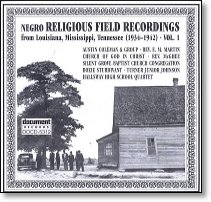 |
Music: Current count 26050 [26017] rated (+33), 395 [396] unrated (-1).
One New Year's resolution that I've been able to keep is that I stop adding records to the previous year's list, so that now that 2015 is gone, I'm officially done with 2014. The final list for 2014 is here. Since the January 31, 2015 freeze date, I added 81 records to the file, bringing the total number of records there to 1248. That was up slightly from 2013 (1222) and 2012 (1190), but still well below the record years of 2011 (1415) and 2010 (1300). The first year I topped 1000 records was 2004, when I started Jazz Consumer Guide -- 1052 that year, which has only dropped below 1000 twice since (982 in 2005, 996 in 2008). The last Voice-published JCG was in 2011, and the freebies thinned out after then, but I had started using Rhapsody in 2007, which took up the slack (and then some).
In fact, the share of rated records I've sourced from Rhapsody (and a few other download sources, including links from publicists) has increased every year since 2007 (16.1%), up to 58.1% in 2014. (The series from 2008-13: 21.9% 34.0%, 42.5%, 46.8%, 47.4%, 49.5%.) It is not clear whether that trend will be sustained for 2015: my plan is to "freeze" the file no later than January 31, and to continue to add stragglers until December 31, 2016. The current 2015 file lists 1007 albums, of which 505 (50.1%) are from Rhapsody, etc. Virtually everything I add in that time will be streamed, so if I wind up with 1200 records (a little less than my 2012-14 average) I'll wind up at 58.5%. Odds of that happening are probably 50-50. Last year I added approximately 230 albums to my 2014 list after January 1 (133 in the pre-freeze January 24 Rhapsody Streamnotes, plus about one-third of the 50 more in the February 13 RS, plus 81 post-freeze albums, so another 193 wouldn't be out of ordinary. However, I suspect that I'm beginning to slow down, so I may not add that any. The number of physical albums I received (or in some cases bought -- not easy to separate the two, but the latter is certainly a tiny share for the last 5-6 years) has declined every year since 2011 (753, 623, 617, 523, 502), and significantly since 2004-07 (1017, 941, 1092, 956) -- peak JCG years, but also pre-Rhapsody, so I was also buying more CDs.
It would be a lot of work (and probably not worth doing) but I could go back through the metacritic files (and I'd probably need some additional sources) and figure out my share of all (at least fairly well known) jazz releases. If I did so, I have little doubt that it would show that my share has decreased regularly since 2004-07 (with a probable peak year of 2004). I've currently heard 211 of the 426 jazz records in the 2015 EOY Aggegate List, so 49.5% -- better than I would have expected, but I have many fewer jazz lists compiled this year. (Actually, I have a larger sample list, 2015 Music Tracking: Jazz, with 1040 jazz albums listed, of which I've heard 610 -- 58.6%; that list includes everything I have heard, whereas the aggregate only lists records that have appeared on other lists.) That's just one data point -- not a trend -- and while it strikes me as respectable I still sense that I am slipping.
I keep expecting my Jazz and Non-Jazz EOY lists to converge in length, but while I added four non-jazz albums this week (Days With Dr. Yen Lo, Halsey, Nozinja, and Skylar Spence -- underground rap, teen pop, Afro-electronica, and disco), Allen Lowe matched that on the jazz side (with a little help from Matthew Shipp), and Steve Swell added an extra, so now the counts are 76-63. Evening out compared to a month ago, but still there are blips. After the JCP ballots were sent off, I received 5-CD packages from both Lowe and Swell. It took a while to sort them out, but I wound up with five A- and 4 B+(***) (one of Swell's is 2-CD). Lowe's are all fairly matched, with a couple regulars and many friends circling around a common approach -- the sort of thing he previously released in single packages (the 3-CD Blues and the Empirical Truth and the 4-CD Mulatto Radio). Three of Swell's sets are the sort of avant-jazz that has little chance of appealing to non-believers -- solo trombone album, a compilation of scattered live sets (including more solo), and a trio with Peter Brötzmann -- but all are exceptionally well done, hence my grades. The fourth, Kende Dreams, is an all-star quintet where everyone excels. Good chance had I gotten it earlier it would have wound up on my ballot, but not feeling like bumping anyone so soon, I left it a notch lower in my file. Terrific album, even for someone with no interest or knowledge of Bartók (like me).
Among the old music, I picked out the two Kaiser records because I had them marked as ungraded, and could skip the step of finding them by tuning into Rhapsody. The unrated account is listed weekly. These are records that I have (at least at one point had) but never got around to. New records pile onto the end of that list, but I currently only have two unrated 2015 releases -- a cassette tape I can't play and a Kansas CD I won't (at least not now) -- and most recent years have been handled with similar efficiency. So most of those records are ten or more years old, many bought up when the last decent local record stores went out of business, and some date back to the LP era (in which case I quite possibly don't have them anymore). Still, I always like to knock a few off whenever I get in the neighborhood, as I was with the new Kaiser/Russell album.
Negro Religious Field Recordings appeared in an Allen Lowe Facebook post. I clicked on it, then found it on Rhapsody, and figured why not? There's probably a lot more down that rabbit hole, and maybe some day I'll go there, but for me this resonated not just from hearing Lowe's latest records but from checking out a Staples Family reissue that's nowhere near as good.
Good chance I'll post a Rhapsody Streamnotes sometime this week. Draft file is currently 125 records deep, more than enough. Probably enough time left in January for a second column too, although I have a couple other ideas kicking around.
EOY Aggegate list should be winding down, but I'm still have a bunch of lists I haven't transcribed yet, and a few stragglers are coming in. One thing I did do was to score the Robert Christgau [RC] and Michael Tatum [MT] grades I've been tracking: 5 for A/A+, 4 for A-, 3 for B+/***, 2 for **, 1 for *. I'm not sure I have them all yet, and will add new ones when they appear (until I stop working on the file). I might wind up doing the same thing for my own grades, but that would be a lot more work.
Here are some EOY lists by critics you should know by name (and note I especially appreciate long lists, which I regard as realistic for people who listen broadly):
- Phil Freeman (Burning Ambulance): link to his jazz list; I can't vouch for his metal list.
- Jason Gross (Ye Wei Blog)
- Jason Gubbels (Cerebral Decanting)
- Chris Monsen (Perfect Sounds Forever)
- Phil Overeem (Living to Listen)
- Rob Sheffield (Rolling Stone)
- Alfred Soto (Humanizing the Vacuum)
- Dan Weiss (Ask a Guy Who Likes Fat Chicks)
Also:
For a list of many more lists, look here.
New records rated this week:
- Peter Brötzmann/Steve Swell/Paal Nilssen-Love: Krakow Nights (2015, Not Two): [cd]: B+(***)
- Cécile & Jean-Luc Cappozzo: Soul Eyes (2015, Fou): [cd]: B+(**)
- Lana Del Rey: Honeymoon (2015, Interscope): [r]: B+(***)
- Deradoorian: The Expanding Flower Planet (2015, Anticon): [r]: B
- The Deslondes: The Deslondes (2015, New West): [r]: B
- Dr. Yen Lo: Days With Dr. Yen Lo (2015, Pavlov Institute): [r]: A-
- Open Mike Eagle: A Special Episode Of (2015, Mello Music Group, EP): [r]: B+(**)
- Jean-Marc Foussat & Jean-Luc Petit: . . . D'Oů Vient La Lumičre! (2015, Fou): [cd]: B+(**)
- Patty Griffin: Servant of Love (2015, PGM): [r]: B+(**)
- Halsey: Badlands (2015, Astralwerks): [r]: A-
- Hamilton [Original Broadway Cast Recording] (2015, Atlantic, 2CD): [r]: B+(**)
- Ted Hearne: The Source (2015, New Amsterdam): [r]: B+(*)
- Amy Helm: Didn't It Rain (2015, E1): [r]: B+(**)
- Henry Kaiser & Ray Russell: The Celestial Squid (2014 [2015], Cuneiform): [dl]: B+(***)
- Toby Keith: 35 MPH Town (2015, Show Dog Nashville): [r]: B
- Kode9: Nothing (2015, Hyperdub): [r]: B+(**)
- Lightning Bolt: Fantasy Empire (2015, Thrill Jockey): [r]: B+(**)
- Low: Ones and Sixes (2015, Sub Pop): [r]: B
- Allen Lowe: In the Diaspora of the Diaspora: Man With Guitar: Where's Robert Johnson? (2013 [2015], Constant Sorrow): [cd]: A-
- Allen Lowe: In the Diaspora of the Diaspora: Where a Cigarette Is Smoked by Ten Men (2015, Constant Sorrow): [cd]: A-
- Allen Lowe: In the Diaspora of the Diaspora: We Will Gather When We Gather (2015, Constant Sorrow): [cd]: A-
- Allen Lowe/Matthew Shipp/Kevin Ray/Jake Millett: In the Diaspora of the Diaspora: Ballad for Albert (2015, Constant Sorrow): [cd]: B+(***)
- Old Man Luedecke: Domestic Eccentric (2015, True North): [r]: B+(***)
- Nozinja: Nozinja Lodge (2015, Warp): [r]: A-
- Dave Rawlings Machine: Nashville Obsolete (2015, Acony): [r]: B+(*)
- Rival Consoles: Howl (2015, Erased Tapes): [r]: B+(**)
- Royal Headache: High (2015, What's Your Rupture?): [r]: B+(*)
- Matthew Shipp: Matthew Shipp Plays the Music of Allen Lowe: I Alone: The Everlasting Beauty of Monotony (2015, Constant Sorrow): [cd]: A-
- Troye Sivan: Blue Neighbourhood (2015, Capitol): [r]: B+(*)
- Skylar Spence: Prom King (2015, Carpark): [r]: A-
- Susanne Sundfřr: Ten Love Songs (2015, Sonnet Sound): [r]: B+(*)
- Steve Swell: Kanreki: Reflection & Renewal (2011-14 [2015], Not Two, 2CD): [cd]: B+(***)
- Steve Swell: Steve Swell's Kende Dreams: Hommage ŕ Bartók (2014 [2015], Silkheart): [cd]: A-
- Steve Swell: The Loneliness of the Long Distasnce Improviser (2015, Swell): [cd]: B+(***)
Recent reissues, compilations, and vault discoveries rated this week:
- Ed Sanders: Yiddish-Speaking Socialists of the Lower East Side (2006 [2015], Okraina, EP): [bc]: B+(*)
- Sonny Simmons: Reincarnation (1991 [2015], Arhoolie): [r]: B+(**)
- The Staple Singers: Freedom Highway Complete: Recorded Live at Chicago's New Nazareth Church (1965 [2015], Epic/Legacy): [r]: B+(*)
Old music rated this week:
- Henry Kaiser: Devil in the Drain (1987, SST): [r]: B+(*)
- Henry Kaiser & David Lindley: A World Out of Time, Vol. 2 (1993, Shanachie): [r]: B+(*)
- Negro Religious Field Recordings: From Louisiana, Mississippi, Tennessee (1934-1942): Vol. 1 (1934-42 [1994], Document): [r]: A-
- Team Hegdal: Vol 1 (2009 [2010], Řra Fonogram): [r]: B+(***)
- Team Hegdal: Vol 2 (2011, Řra Fonogram): [r]: B+(***)
Unpacking: Found in the mail last week:
- Jenny Maybee/Nick Phillips: Haiku (self-released): January 29
- Gabriel Mervine: People (Synergy Music): January 22
- Naked Truth: Avian Thug (Rare Noise): January 22
Added grades for remembered LPs from way back when:
- Ed Sanders: Beer Cans on the Moon (1972, Reprise): B-
Sunday, January 03, 2016
Saudi Kills
I've missed doing this the last couple of weeks. I've had other things to focus on, and figured I'd wind up writing pretty much the same things about the same outrages when I returned as I would have written before. So Saudi Arabia's mass execution of 47 mostly political prisoners came as a bit of a shock. Not a complete shock, mind you. Since King Abdullah's death last year, the Saudi monarchy has been increasingly aggressive about throwing its power around, most obviously in its entry and escalation of Yemen's civil war: one of the most blatant war crimes of the last decade, one that practically every day generates reports of atrocities. But Saudi Arabia has been meddling in the affairs of other countries since 1980 -- partly in response to the twin shocks of the Iranian Revolution and the siege at Mecca's Grand Mosque, both in 1979, but largely because the Reagan administration, following Kissinger's 1970s strategy of promoting regional powers as proxies for American mischief, encouraged the Saudis to help finance the Holy War in Afghanistan against the infidel Russians. The Saudis not only ponied up the money, they understood that to recruit Mujahideen they needed to promote their state-linked Salafist doctrine throughout the Islamic world. In doing so, the Saudis (and their fellow aristocrats among the former British cronies of the Persian Gulf states) built the financial and human infrastructure that promotes reactionary terror throughout the Middle East -- one that has taken on a life and logic of its own, turning on its former masters as surely as the Terror devoured the Jacobins.
America's role in all of this can has resulted in one blunder after another, the root cause two beliefs we picked up from the British who got there (and got out) first. One is the conviction that all those who (however temporarily) stand with us are advancing civilization (basically a mental framework we have for admiring ourselves). The second is blind faith that any problem can be solved by force, so long as it is so swift and brutal that no one will dare repeat the offense. The first is little more than a invitation for sycophancy and corruption, one that attracts the worst possible allies, but which wears thin on anyone with integrity or principles. While the latter is so blatantly unjust that that it only breeds resentment and subversion, including those asymmetric acts of sudden violence we dub "terror" -- terminology oblivious to what real machines of war, like B-1 bombers and C-5 gunships, routinely wreak.
Of course, the British only made matters worse, except for a few oil company owners, but they trained the Israelis in their methods -- in some cases personally, as with Ronald Wingate and Moshe Dayan; often by example, as with their suppression of the 1937-39 Arab Revolt; and ultimately well enough that the Israelis preserved the whole of British colonial law for selective application to the Palestinians. With such methods, the Israelis have managed to destabilize their dominance and extend their conflict for many generations. America followed in those footsteps not because the approach seemed to work as out of arrogance, figuring that the self-appointed rulers of the free world were destined to succeed.
Of course, they haven't. Nearly fifteen years of active US military intervention in the region has cycled tragedy and farce in an ever more irresistible whorl -- among the casualties we find the brains of all current presidential candidates (even Rand Paul; even Bernie Sanders). Isn't one of those textbook definitions of insanity the belief that repeating the same act will produce a different result? The most immediate threat we face comes from the neocons, refreshed by a brief respite from an Iraq fiasco that they're now convinced they had won (until the lily-livered Obama sold them out), anxious to send American troops back into the fray. To accomplish this, they not only peddle flattering self-delucions, they never waste a chance to paint ISIS as the gravest threat to civilization, like, ever. And they've been so successful that hardly any "very serious" political pundit dispute the urgent need to "smash ISIS" (that seems to be the favored phrase, as if several million people living on their land are mere cockroaches).
Their propaganda campaign has worked is largely because we seem to have this primordial fear of an Islamic State -- presumably dating to the downfall of Constantinople in 1454 if not the Battle of Tours in 732, although who knows about either? (More likely this is some sort of mirror reflection where we fear that others should do to us as we did to them; e.g., in the Crusades from 1092 and the Inquisition from 1492. Islam was almost never spread by the sword after the 8th century -- the exceptions were converts with a history of raiding, like the Turks and Mughals, and most people under the early Caliphs retained their pre-Islamic religions and legal systems without compulsion.) But while we're geing goaded into war with an "Islamic State" centered in Raqaa, we hear nothing about the more/less equally brutal Islamic State in Riyadh -- Saudi Arabia -- which represses Shi'a, bans all non-Muslims, punishes people they consider criminals with beheadings, which even practices the ancient art of crucifixion. Last week's mass executions, on top of the bombing and invasion of Yemen, should offer us a wake up call. Saudi Arabia gets a free pass from the neocons because they are rich, both selling the West oil and reinvesting their profits in Western banks. The only reason the Raqaa IS seems more brutal is that they are engaged in a life-and-death struggle, whereas the Riyadh IS is sitting high, directing most of its brutality abroad -- but not all, as we should see clearly now.
I shouldn't need to say this, but I am not advocating US military intervention to right the wrongs of Saudi Arabia. I don't think the US can or should do that, but we should stop helping the Saudis commit those wrongs -- every bomb they drop in Yemen is, after all, made in America -- and we should realize our limits in Syria and Iraq (among other things, that we can't really distinguish friend from foe, that we don't really have anything to offer the people there other than death and destruction, and that we have no business doing that).
Maybe you think I'm one of those awful isolationists? I have two answers to that. One is that if you have to choose between being a serial murderer and a hermit, I'd much prefer that you opt for the latter. The other is that it is possible to interact with the Middle East (or anyplace else) without becoming one or the other. You can, for instance, trade, invest, exchange students and tourists -- all you need for that is stability and security and mutual respect, which pacts, meddling, an arms race, and intervention obliterates. In fact, aside from a tempest over piracy (the Barbary Wars, 1801-05) the US pretty much did just that, all the way up through 1945: after that Israel, the Cold War, and oil greed and fear distorted things, but also the US forgot its founding principles, starting with appreciation of freedom from foreign dominance and entanglements, an aversion to maintaining a standing army, and at least a nominal belief that "all men are created equal, and endowed by their creator with certain inalienable rights" -- you know, life, liberty, the pursuit of happiness. Ironically, the same time Americans were losing their principles the UN was adopting them as basic human rights. One could have built a foreign policy around those ideals, but Truman and Eisenhower didn't, and later presidents -- especially Nixon, Reagan, and the Bushes, but also fatefully the Democrats as well -- only got worse.
Here are some links on the Saudi mass executions:
Saudi Arabia: Mass Execution Largest Sine 1980:
The mass execution to begin 2016 follows a 20-year high of 158 executions in 2015. [ . . . ]
Human Rights Watch has documented longstanding due process violations in Saudi Arabia's criminal justice system that make it difficult for a defendant to get a fair trial even in capital cases. A Human Rights Watch analysis in September revealed serious due process concerns during four trials of Shia protesters before the Specialized Criminal Court. They include broadly framed charges that do not resemble recognizable crimes, denial of access to lawyers at arrest and during pretrial detention, quick dismissal of allegations of torture without investigation, and admission of confessions that defendants claimed were coerced.
Angus McDowall: Saudi mass execution driven by fear of Sunni militancy: Most of the negative reaction has focused on Shiites who were killed for "crimes" we would view as free speech, but also on the list were dozens of people we would call "Sunni militants" and probably put on our own kill lists:
The Al Saud ruling family regard the expansion of Shi'ite Iran's influence in the Middle East as a threat to their security and to their ambition of playing the leading role among Arab states.
Inside the kingdom, however, it is the threat of a rebellion by the majority Sunnis that most alarms a dynasty whose rule is based on conservative support at home and an alliance with the West.
All past threats to the Al Saud, from a 1920s tribal rebellion to riots in the 1960s, a siege at Mecca's Grand Mosque in 1979 and protests in the 1990s, were caused by conservative Sunni anger at modernisation or ties with the West.
That was why the al Qaeda uprising that began in 2003, and attacked the Al Saud by turning its own conservative Salafi brand of Sunni Islam against it, was such a danger. It is why the jihadist movement's latest iteration, Islamic State, is also a problem.
While Islamic State seems to lack real support among Saudis, some may sympathise with its broader goals, approving of its rhetoric against Shi'ites and the West and its criticism of corruption among the Al Saud.
By executing al Qaeda ideologues and attackers, Riyadh was showing its determination to crush support for the militant cause. By also killing four Shi'ites, angering Iran in the process, it was telling conservative Sunnis it was still on their side.
In other words, the Saudis seek to solve all their problems by killing anyone who questions the right of the ruling family to usurp all of the nation's vast wealth.
Adam Withnall: How Saudi Arabia's own media reported on the execution of 47 people:
The Saudi press, regulated by the government and required by the country's constitution-like charter to "strengthen national unity," exists under a perpetual state of self-censorship.
In an editorial entitled "Law took its course," the major Riyadh-based English language news outlet Arab News portrays the executions in the context of prominent terror attacks on foreigners in the kingdom and "proceedings that took years in the courts."
I believe KSA means Kingdom of Saudi Arabia.
Ben Hubbard: Iranian Protesters Ransack Saudi Embassy After Execution of Shiite Cleric
Simon Tisdall: Saudi executions put ball of regional tension in Iran's court:
Saudi Arabia breaks off ties with Iran after al-Nimr execution
Jessica Schulberg: Fiorina and Carson Defend Saudi Government, Which Cites Sharia Law to Execute 47 People. You could probably get similar statements from most other candidates.
Maajid Nawaz: Saudi Arabis's ISIS-Like Justice:
Among those killed today was Ayatollah Nimr al-Nimr. He was a vocal Saudi-Shia opposition cleric who publicly criticized the ruling al-Saud family and called for elections. In 2011 Nimr said that he favored protest over violence, "The weapon of the word is stronger than bullets, because authorities will profit from a battle of weapons." The Saudi interior ministry however, accused him of being behind attacks on police and allying with another regional theocracy, Shia Iran.
In fact, Saudi Arabia's regional tension with Iran has reached such levels that it is prepared to countenance the execution of minors. A 17 year old relation of al-Nimr has been sentenced to crucifixion -- his headless corpse to be displayed in public for several days. And Abdullah al-Zaher, who was 15 when he was arrested, also awaits beheading. This makes him the youngest person so far to be sentenced to death.
Beyond executions, Nobel Prize nominee Raif Badawi, a blogger who started the "Free Saudi Liberals" forum in 2008, has been convicted of "insulting Islam" and given a 10-year prison term with 1,000 lashes. And as Lujain al-Hathloul's and Maysa Al Amour's imprisonment shows, women still can't drive in Saudi Arabia. Nor, apparently, can they use social media to complain about being unable to drive. Meanwhile, neighboring Yemen has been carpet-bombed to oblivion by the House of Saud.
Rami G Khouri: 2015's Dark Legacy in the Middle East:
Applying this principle to the last year in the Middle East reveals several troubling trends that have made life difficult for hundreds of millions of people. One in particular stands out, and strikes me as a root cause of many other negative trends that plague our region. This is the tendency of governments to use increasingly harsh measures to restrict the freedoms of their citizens to express themselves and meaningfully to participate politically and hold power accountable.
Several aspects of this behavior make it especially onerous. It is practiced by all states in the region -- Arab, Israeli, Iranian, and Turkish -- leaving few people in this part of the world who can live as fully free and dignified human beings. It is justified on the basis of existing constitutional powers, so governments can jail tens of thousands of their citizens, rescind their nationality, or torture and kill them in the worst cases, simply because of the views they express, without any recourse to legal or political challenge. It shows no signs of abating, and indeed may be worsening in lands like Egypt, Turkey, and others. And, it is most often practiced as part of a "war on terror" that seeks to quell criminal terror attacks, but in practice achieves the opposite; the curtailment of citizen rights and freedoms exacerbates the indignities and humiliations that citizens feel against their government, which usually amplifies, rather than reduces, the threat of political violence.
Capital punishment by country: Lots of statistics: 102 nations have completely abolished capital punishment, it's fallen into disuse but hasn't been outlawed in 57 more, leaving 37 nations who actively make a habit of killing their own people. In 2014, China killed the most, but 2nd place Iran killed the most per million (aside from a statistical blip in Equatorial Guinea), followed by Saudi Arabia. With Saudi Arabia's body count growing from 90 in 2014 to 158 in 2015 (or 205 in 2015 + 2 days), there's little doubt that Saudi Arabia is the most execution-prone state. United States is ranked fifth at 35, but that vastly underestimates the number of death sentences handed out here. Egypt is listed 8th with 15, but last year Egypt handed out hundreds of death sentences in a single day/trial. Israel is not listed because all of their executions are extrajudicial. We also don't have statistics for people shot and killed by police, but those are significant factors in the US and Israel. Nor for people killed by governments in military actions -- a statistic that Syria and Iraq excel in, although Saudi Arabia has been racking up a high score in Yemen recently, and I calculated that during Israel's recent 51-day assault on Gaza their kill rate per capita was higher than Syria's.
If I could whisper into the ear of Ayatollah Khamanei, I'd suggest he should review the relevant books and conclude that capital punishment, at least under circumstances today, is contrary to the laws and spirit of Islam. Abolishing the institution in Iran would do wonders for that nation's international respect, and would instantly give it moral high ground to criticize Saudi Arabia. As it is, Iran is nearly as bad as Saudi Arabia, and the pair, with their deep conceits and pretensions are embarrassments to Islam. This is because the belief that it is just for the state to execute criminals opens the door for all kinds of state-directed violence. We see this even in the US, which until recently could point to a strong legacy of due process.
Nimr's merciless dispatch will thus be seen as deliberate Saudi defiance of western opinion and international human rights concerns and, possibly, as a direct challenge to Tehran. Iran's leadership may now feel duty bound to pick up the gauntlet. This is why the outrage and condemnation currently being expressed by Iraqi, Lebanese and Yemeni Shia politicians is essentially background noise. Likewise the limited, spontaneous street protests in Bahrain that followed the executions. Shias in Saudi Arabia and across the region will wait to see what Iran decides. They will take their lead from Tehran.
At the very least, Iran can be expected to exploit these events diplomatically, stepping up its propaganda campaign against what it habitually terms the illegitimate and irresponsible Saudi regime. Countries such as Britain and the US, closely allied to Riyadh, are already embarrassed by Saudi human rights abuses. Public disgust will increase their discomfort, though they will not abandon their strategic Saudi alliance for one dead Shia cleric.
Ran out of time to comment on anything more, but here are some single-line links I had opened up:
David Atkins: Carson's Implosion Is a Reflection of the Con Artistry That Has Overtaken the GOP
David Atkins: More Conservative Economics Failure: Scott Walker's Wisconsin Sees 28% Deficit Jump
Giorgio Cafiero/Daniel Wagner: While Saudi Arabia Goes to War Abroad, It's Simmering at Home
Martin Longman: A Real War on Christmas: "63 people got shot and 27 people were killed on Christmas day."
Michael Perelman: How Karl Marx Helped Shape the Republican Party
David Stockman: Christmas 2015 -- Why There Is No Peace on Earth
Saturday, January 02, 2016
How to Fish
Thought I'd share a recipe I evolved for two since I tried it last night, working mostly from memory and hunch, and it came out marvelous. My original idea was to write it up and mail it to a cousin, but then I thought of a couple more people who might enjoy it. And then it dawned on me that I could just as easily post it here for the masses who read this blog.
The basic recipe is "Baked Fish with Capers and Olives" from Nancy Harmon Jenkins, The New Mediterranean Diet Cookbook, which I've transcribed and annotated here. That recipe calls for two pounds of fish to serve 6-8. I picked out three filets from a bag of frozen pacific cod, probably a bit less than 1 lb. I also had two Yukon gold potatoes on hand, so I peeled them (not necessary) and cut them up into a rough 1/2-inch dice. Put them in a bowl, added some extra virgin olive oil (about a tablespoon, a generous amount), salt and pepper. Also coarsely chopped three cloves of garlic, added to the potatoes, then spread them out in a 9x12 baking dish (effectively oiling the dish). I placed the fish in the middle of the pan, moving the potatoes to the side.
Heat the oven to 400F. In the same empty bowl (no, I didn't wash), I put one 14 oz. can of diced fire-roasted tomatoes, a teaspoon of lemon juice (not fresh, but do it right if you want), 1/2 teaspoon of sugar, about two tablespoons of capers, and about one-half cup of green olives (from the Dillons olive bar: large, pitted, no stuffing; cut in half lengthwise). Stir this mixture up, then spoon it over the fish. Sprinkle bread crumbs on top. (I used "gluten free" but you can probably find something better.) Finally, drizzle a little more olive oil on top (I used about 2 teaspoons).
Bake for 35-40 minutes, by which the potatoes should be done, the sauce bubbly, and the fish flaky. The recipe above also promises browned bread crumbs, but mine stay pretty white (although they do add some texture. And that's it: about 10-12 minutes of prep, plus the wait while it bakes. You could add a green salad -- I'd probably do horiatiki (Greek) [1] or panzanella (Italian) [2] or maybe fattoush (Lebanese) [3] depending on what I had on hand (or some ad hoc mix, since they're all pretty compatible).
If the fish is frozen (and not very thick) you don't even need to thaw it out. Fresh tomatoes would be more work, and unless they're home grown aren't worth the trouble (use them in the salad). Use any kind of flaky white fish -- you can probably get away with farm fish like swai or tilapia but it won't be as good as cod. I suppose you could try this with salmon, but I'd rather do something else with it [4]. Bluefish should work. Catfish might -- I've never tried baking it [5]. For salt cod, try this (it's a fair amount of work, and a staple that was once cheap enough to feed to slaves but isn't anymore).
Notes:
[1] Horiatiki (Greek) salad: toss together romaine lettuce, cucumber (peeled, seeded, chopped), red onion (chopped), tomatoes (cut into wedges or chunks), bell pepper (any color, sliced thin), kalamata olives (pitted), feta cheese, parsley, anchovies, capers (most of these are optional, but it won't be recognized as a Greek salad without the lettuce, tomatoes, olives, and feta; the capers aren't in Jenkins' recipe). For dressing, use 1/3 cup extra virgin olive oil, juice of 1/2 lemon, 1/2 teaspoon dried oregano, salt and pepper to taste: shake it up, pour it on, and toss.
[2] Panzanella is an Italian salad with bread -- ciabatta works well, cut the crust off and dice it; mix it with shopped tomatoes so it starts to get mushy (it should blend into the salad, not stand out like croutons -- nothing against croutons). Also use romaine lettuce, red onion, cucumber, and basil (again, more or less -- the bread and tomatoes are key). Not in the recipe, but you can add some grated parmesan. For dressing, use 1/2 cup extra virgin olive oil, 1/4 cup red wine vinegar, 1 tablespoon balsamic, salt and pepper.
[3] Fattoush is another bread salad, from Lebanon, but here you want some crunch: traditionally use toasted pita bread, although I'd rather make croutons from French bread than use those pita crisps that show up at most local restaurants. (The best I've made was with Turkish pide bread, which is not the same thing as pita.) Use romaine lettuce, cucumber, radishes (chunked), scallions (chopped), tomatoes (chunked), parsley, mint (again, more or less). Jenkins calls for pickles ("plain brine-pickled cucumbers, not sweetened or heavily flavored with garlic or dill"), which isn't a bad idea but I'd rather add capers, and I'm surprised she didn't include olives (kalamata, pitted, coarsely chopped) and/or feta. For dressing, crush a couple garlic cloves in some kosher salt, then add 1/4 cup extra-virgin olive oil, 1/4 cup lemon juice, and 2 tablespoons of ground sumac.
[4] The easiest thing to do with salmon is to marinate it in teriyaki sauce (equal parts, e.g. 1/4 cup each, regular soy sauce, sake [Japanese rice wine], and sugar) for half an hour, then skin-side down broil it 6-10 minutes (or until it browns on top and flakes), brushing it with reserved marinade midway. If no skin, turn it over midway. I usually make rice (sometimes fried with ham and egg) and stir-fried lima beans with it, although there are lots of other options -- unfortunately, they almost all take longer to cook than the salmon.
Of course, there is much more you can do with salmon. I've had several guests tell me that Barbara Tropp's Clear-Steamed Salmon with Ginger-Black Bean Vinaigrette was the most delicious meal they had ever had. The ingredient list can be daunting -- my secret is Chef Chow's Szechuan Hot Bean Paste, which as far as I can tell is no longer sold (I've bought two jars in my life, both in NJ, one when I lived there in the early 1980s, the other when I moved back in the late 1990s -- I use it sparely but I'm almost out). But the techniques are pretty straightforward: marinate the salmon, steam it (over onion and spinach), mix up a big bowl of vinaigrette in the food processor, and spoon it over the steamed fish.
[5] I don't think I've ever made catfish from a recipe. I grew up on fried catfish, some of which I personally caught (well, not many). So I can do that, but nowadays what I prefer is dredge it in flour, sautee it in olive oil infused with a couple crushed cloves of garlic, and season with salt and pepper. Usually serve that with pasta. In fact, add some preserved lemon peel, chopped garlic, and capers to the oil I cooked the fish in and use it to sauce the pasta. Actually, you dump the pasta into the pan, put the fish on top, spritz it with lemon juice, and garnish with parsley.
Jenkins' book has become my go-to standard for Mediterranean, although I also use Claudia Roden, Paula Wolfert, Sarah Woodward, and lately Yotam Ottolenghi -- also Penelope Casas for Spanish, Marcella Hazan for Italian, and Tess Mallos for Greek and Middle Eastern. (Whoa! Just checked those names and discovered that the latter three, all in their 70s, died in 2012-13. Roden and Wolfert are also in their 70s. Don't know about Woodward, whose short but well-illustrated Classic Mediterranean Cuisine is a perfect first book on the subject -- and my still-best sources for a dozen or more recipes I've made many times, from Paella Valenciana to Imam Bayildi).
Someone once told me that if you can read a cookbook, you can make anything. I would like to think I've shown that to be true.
 |
Dec 2015 |